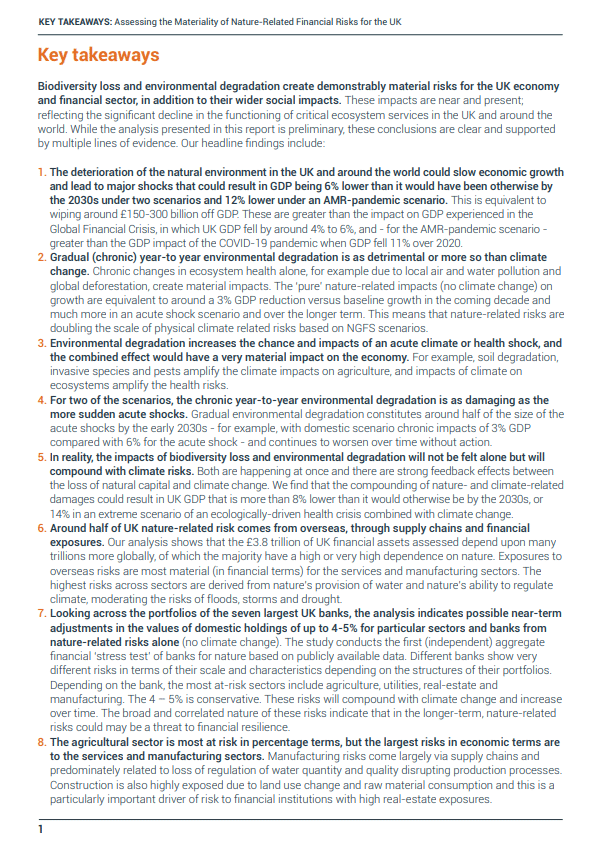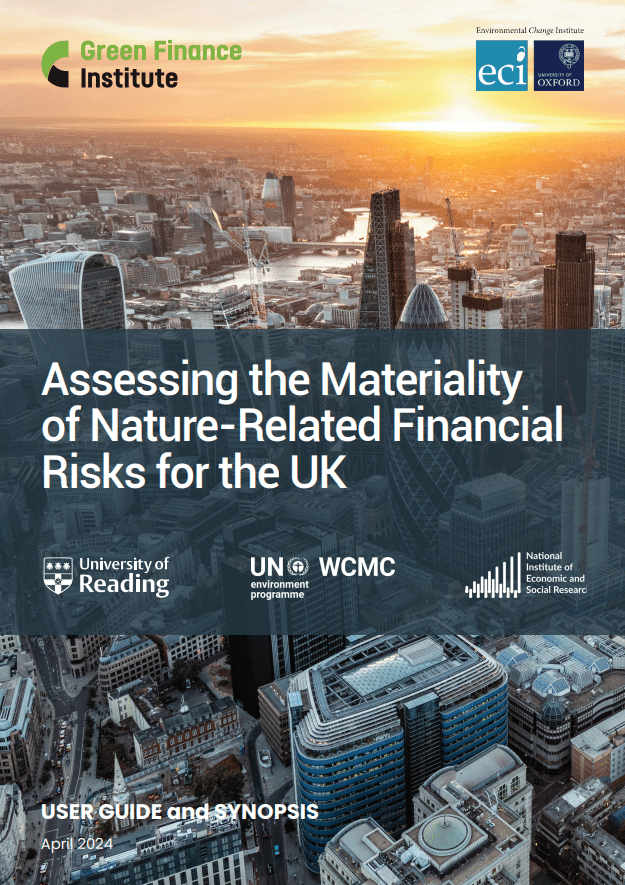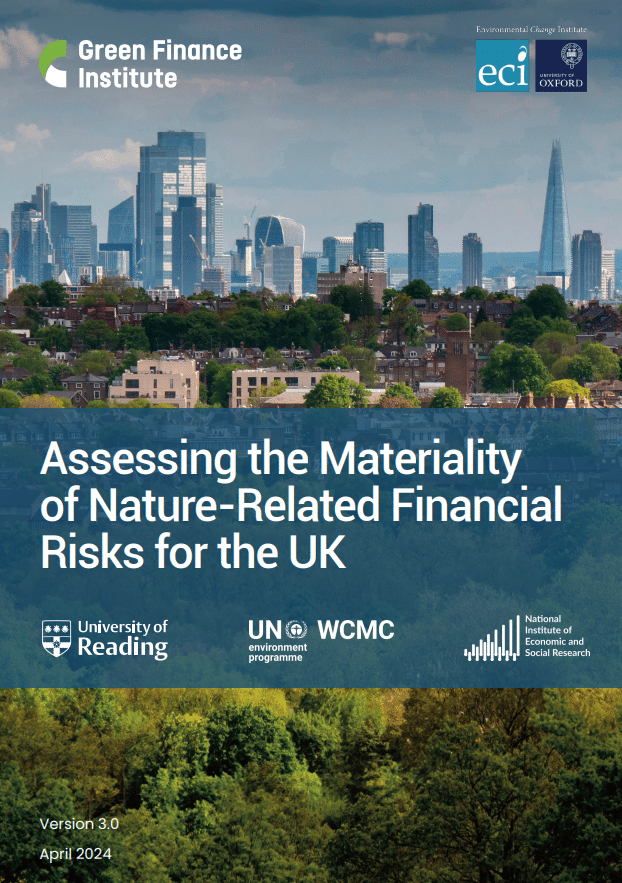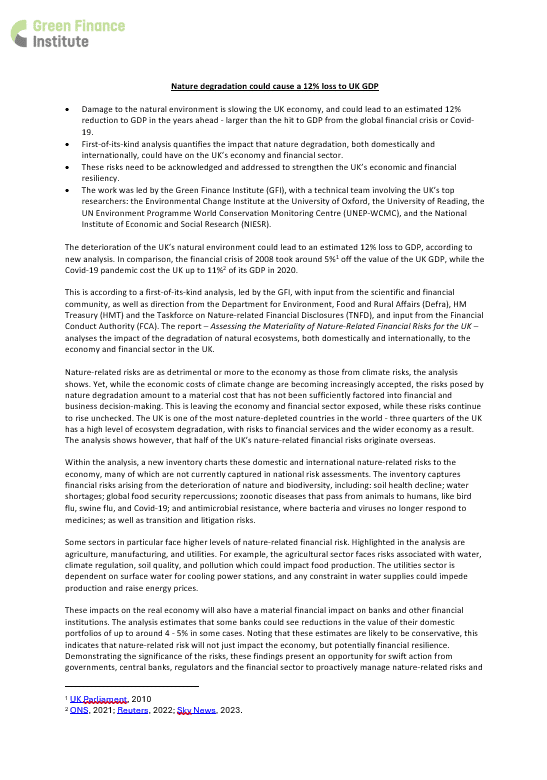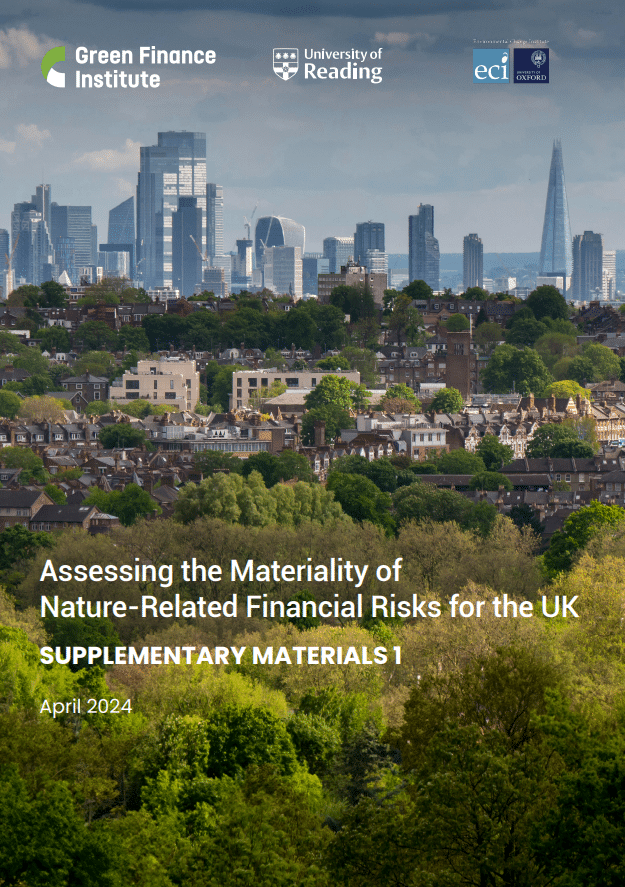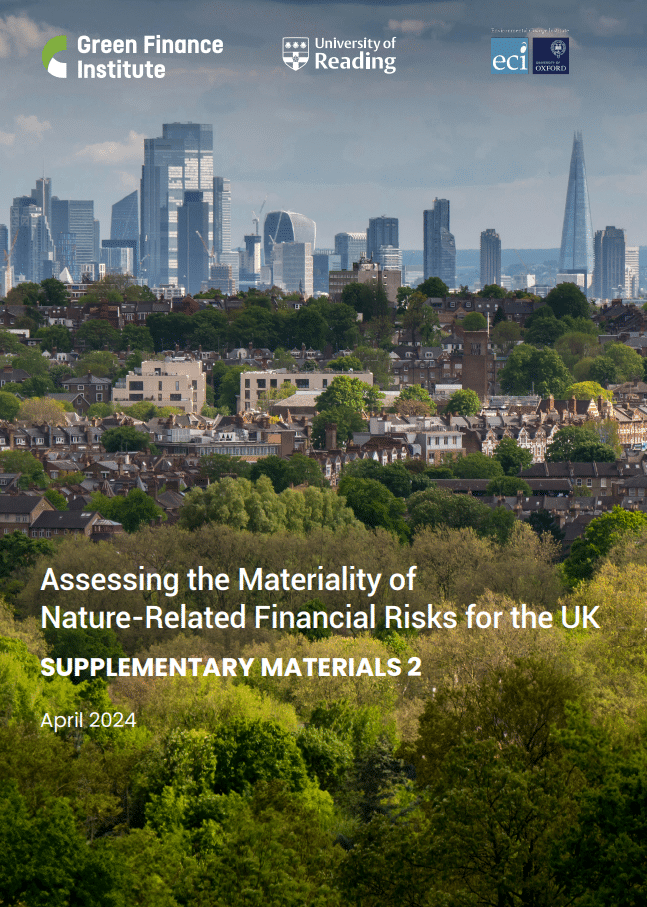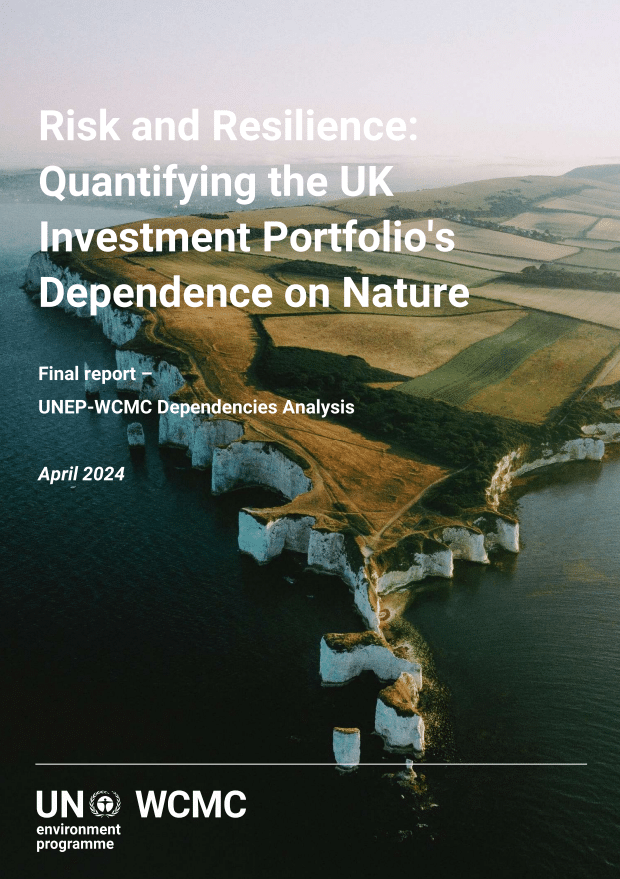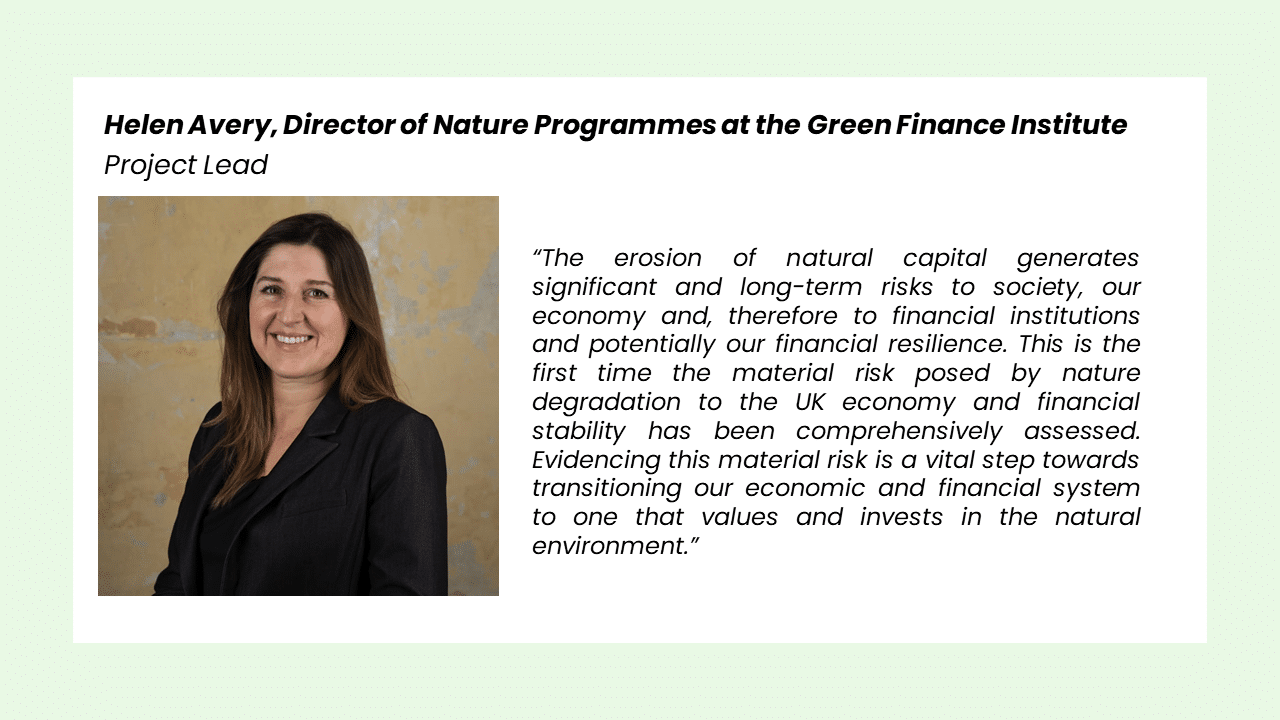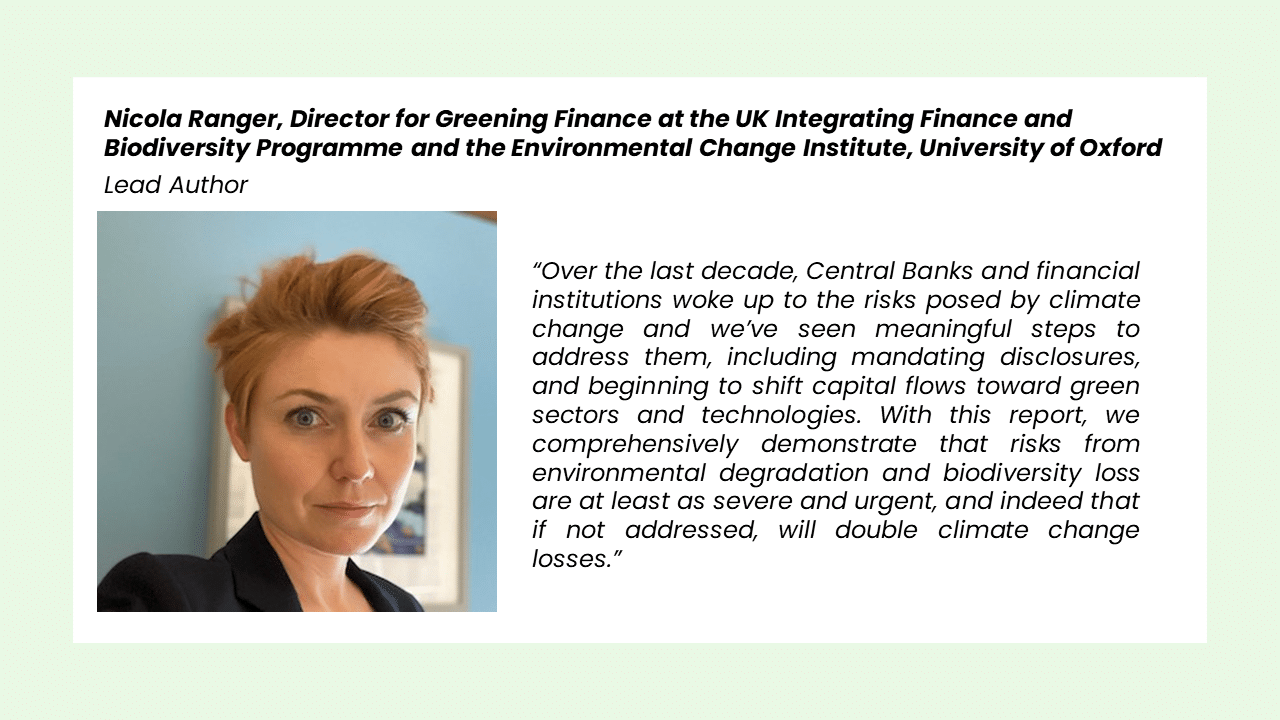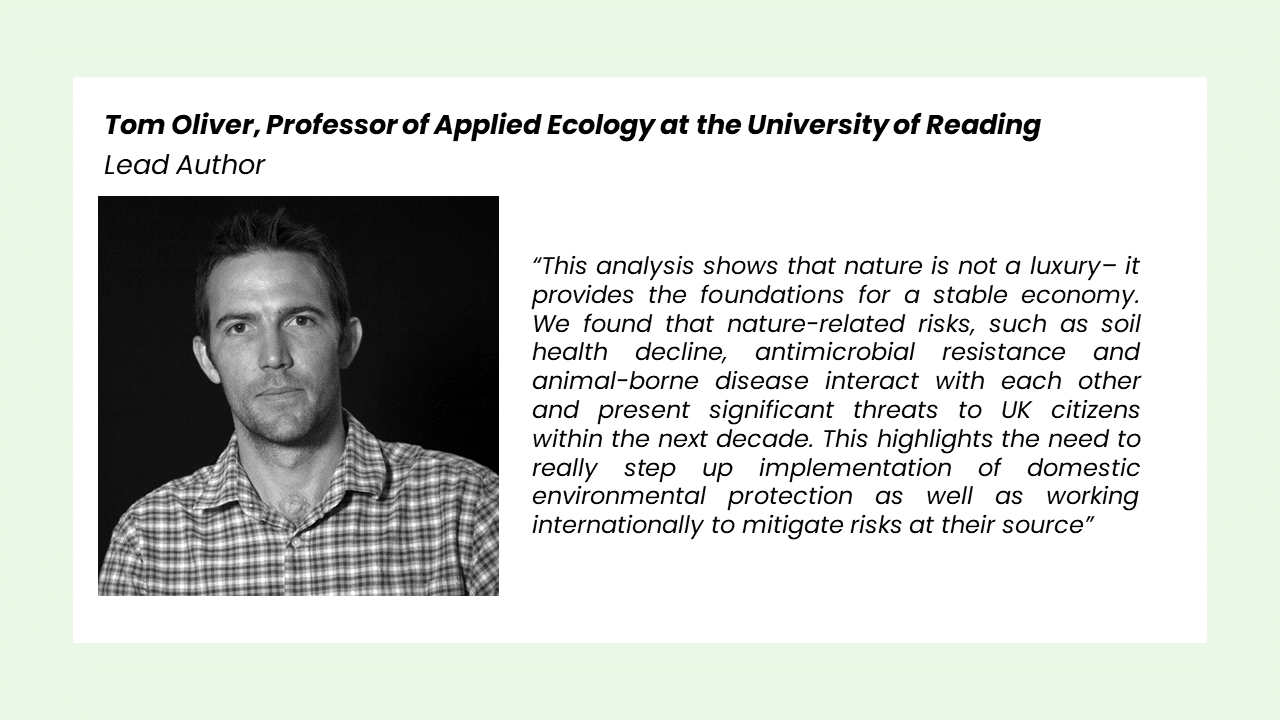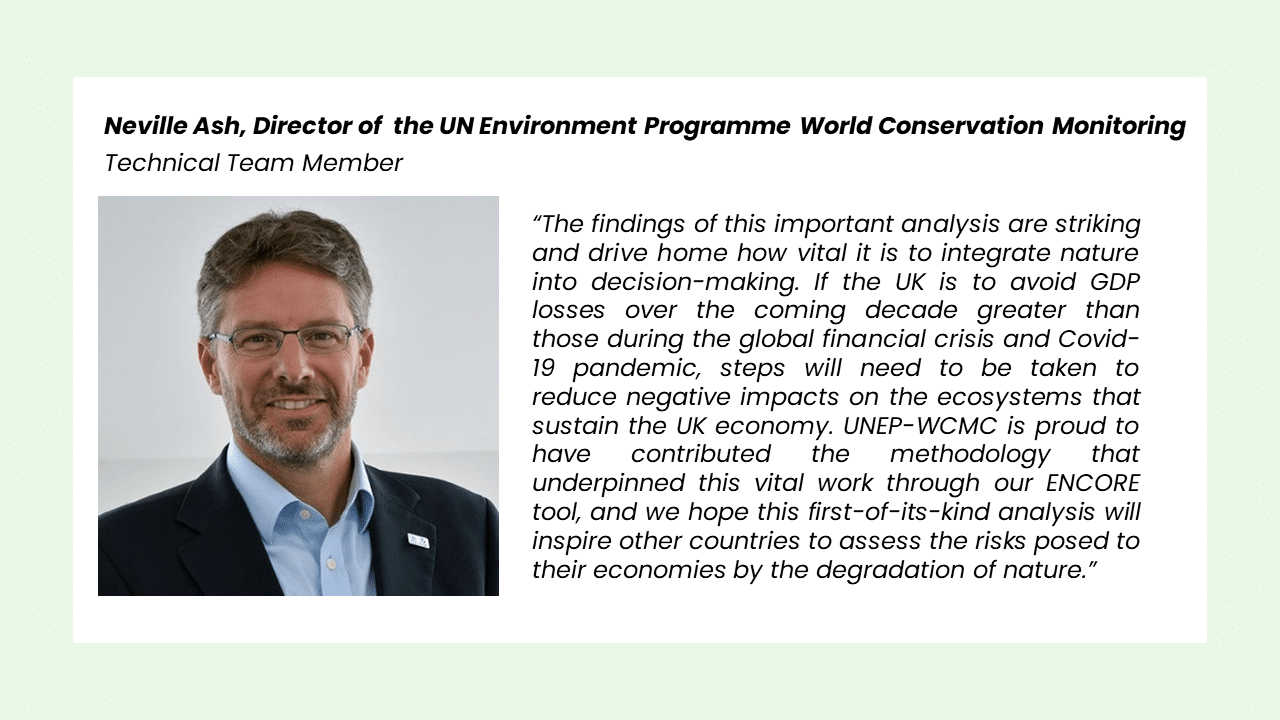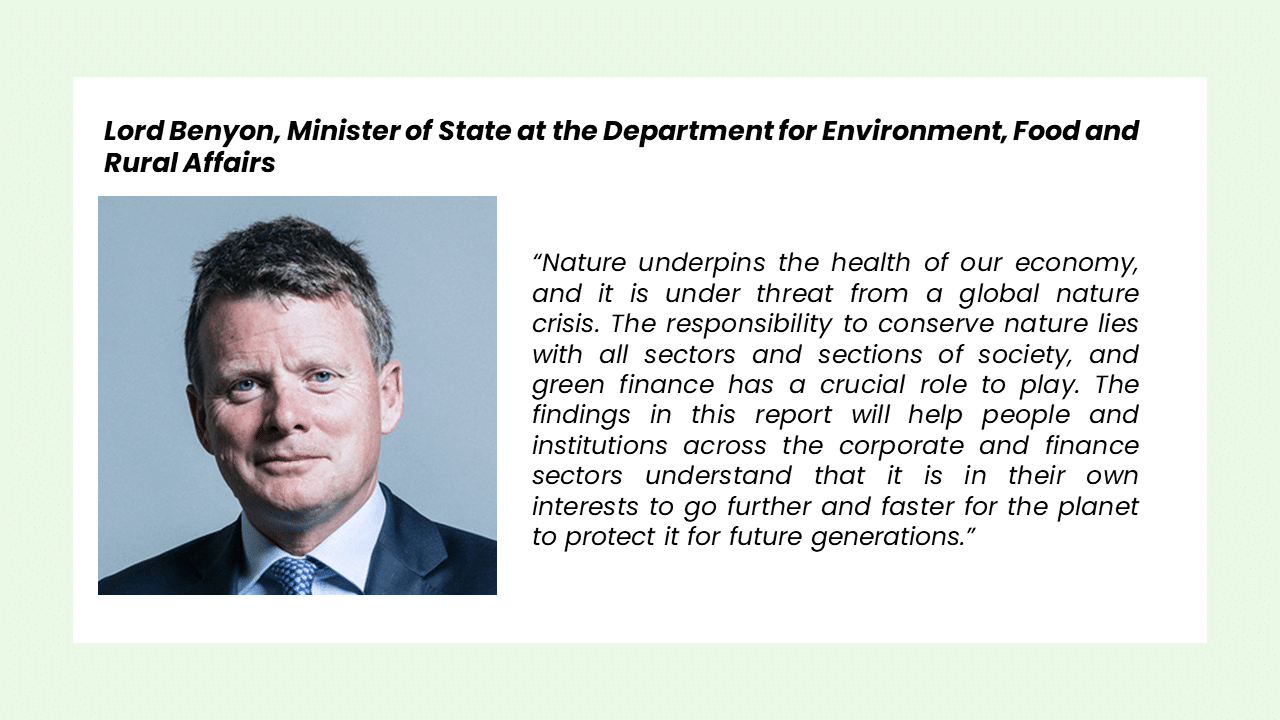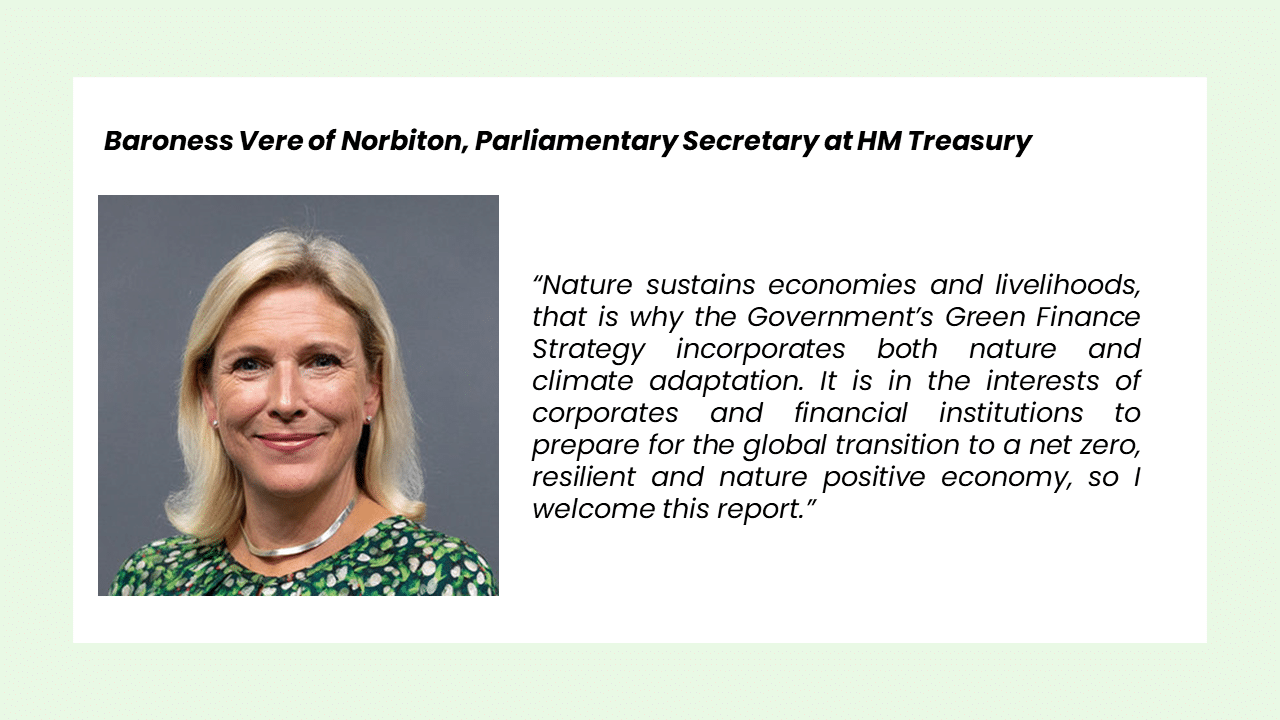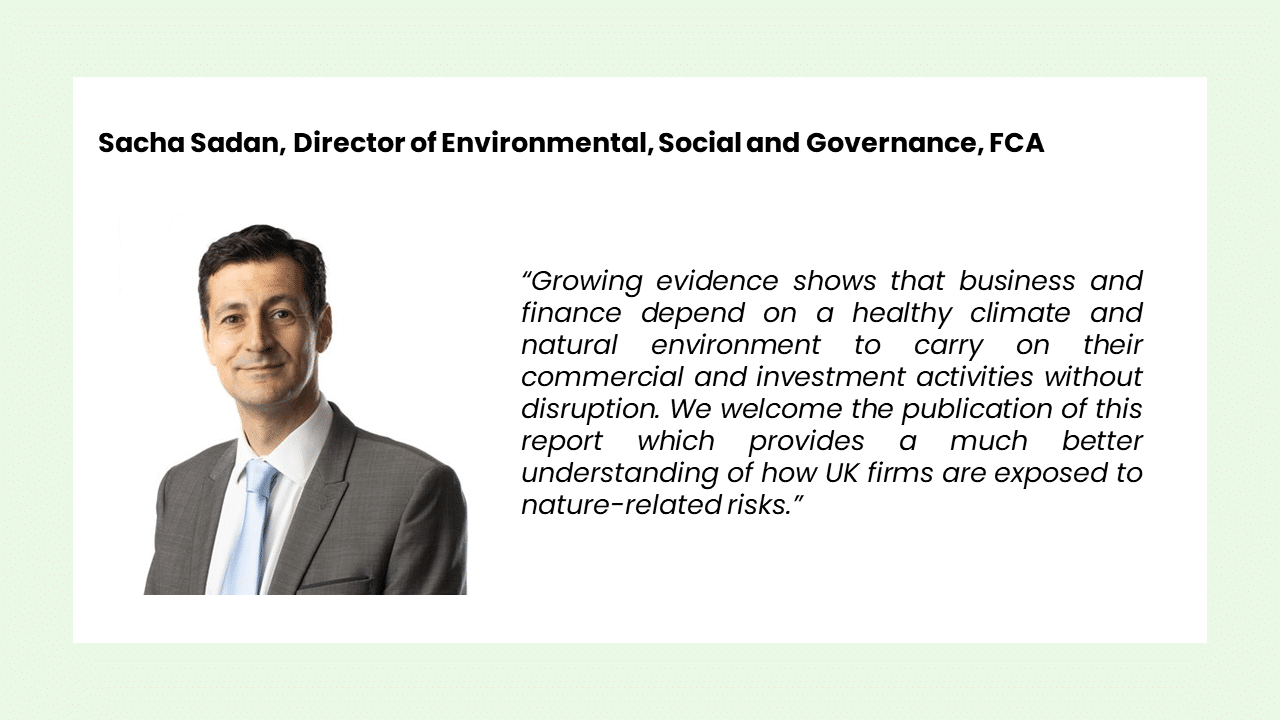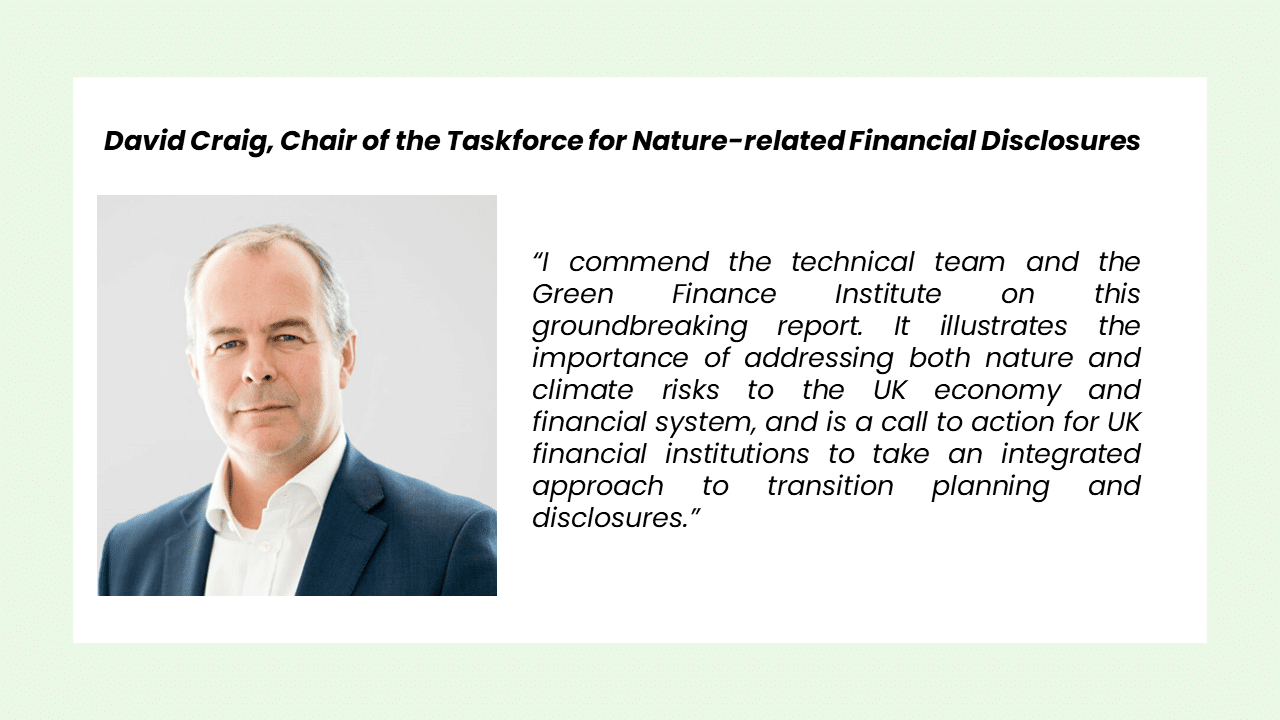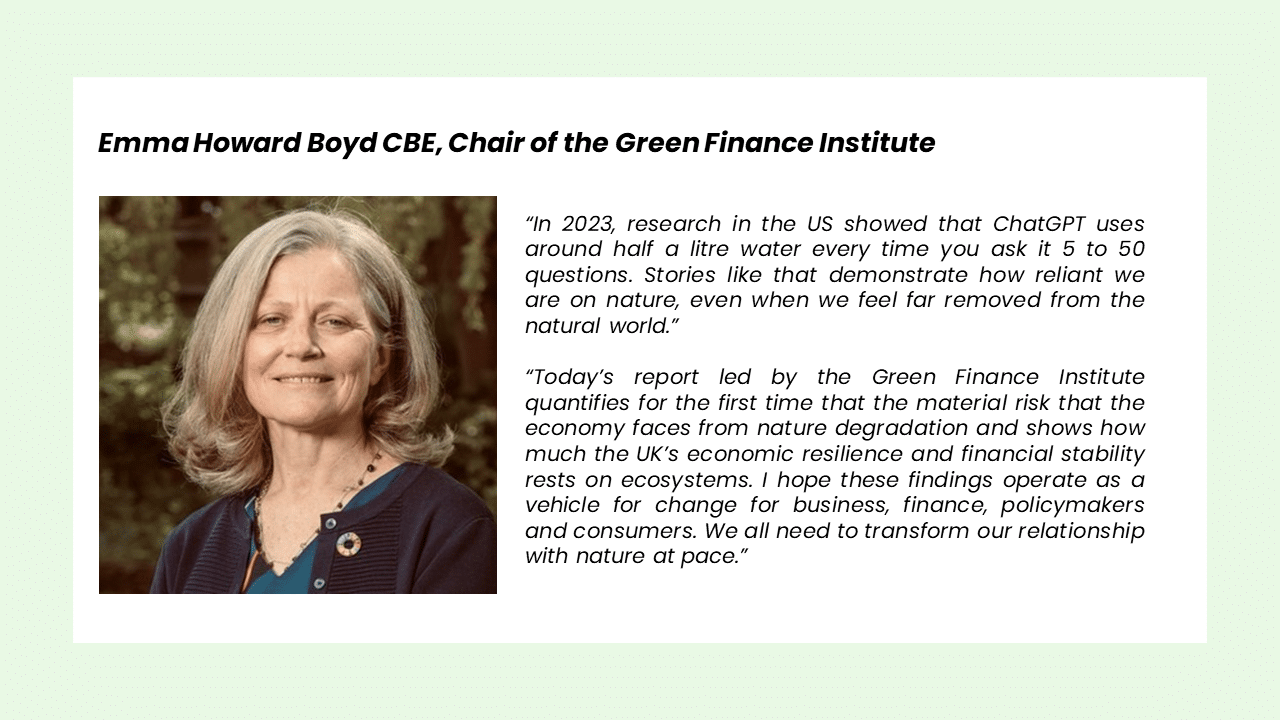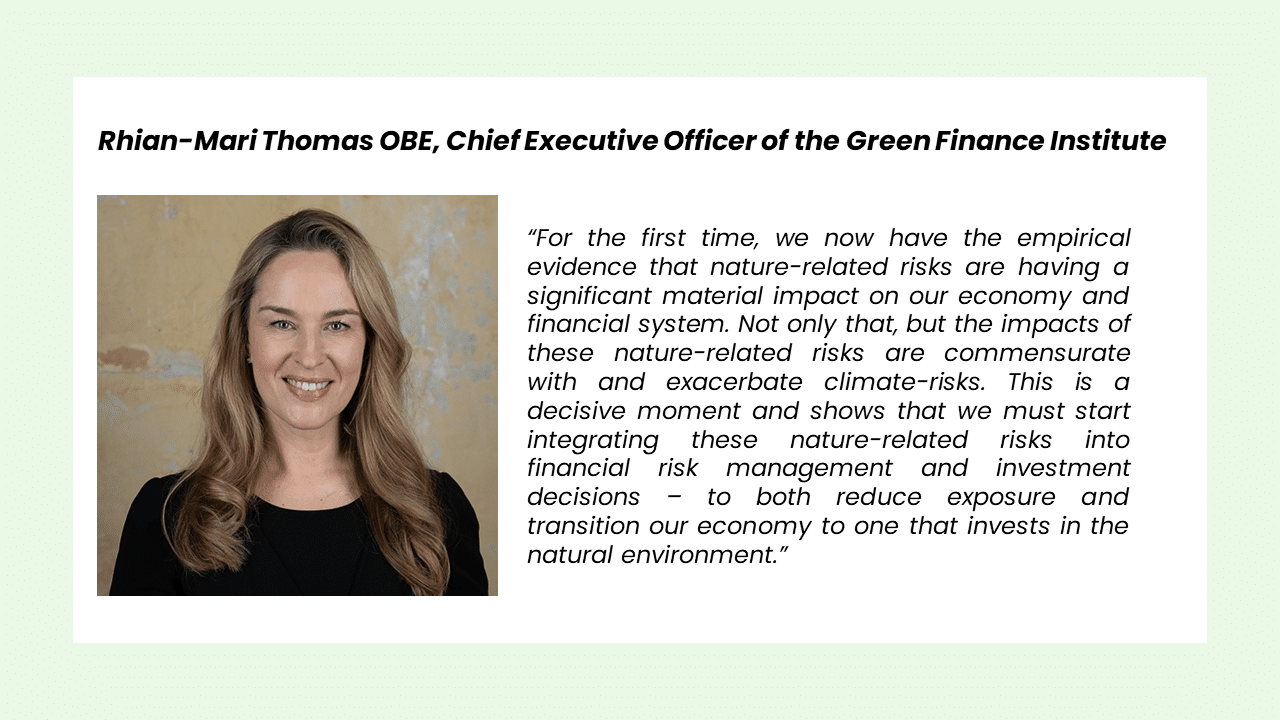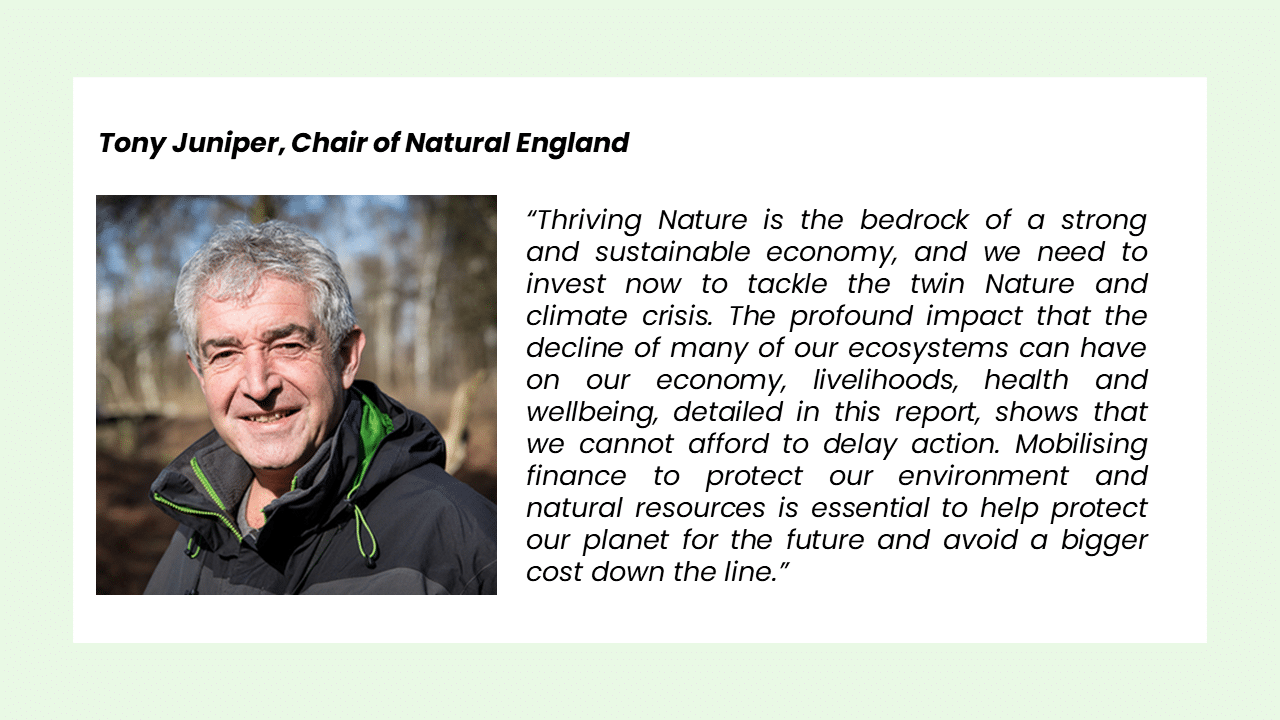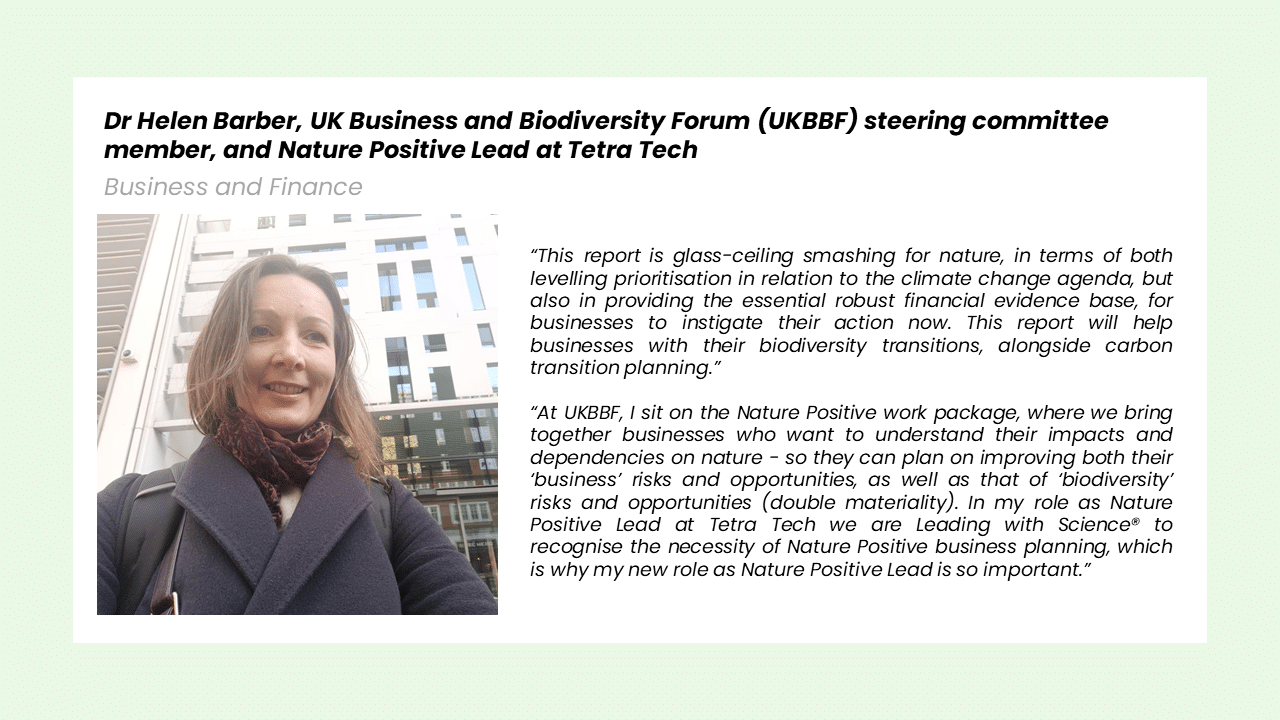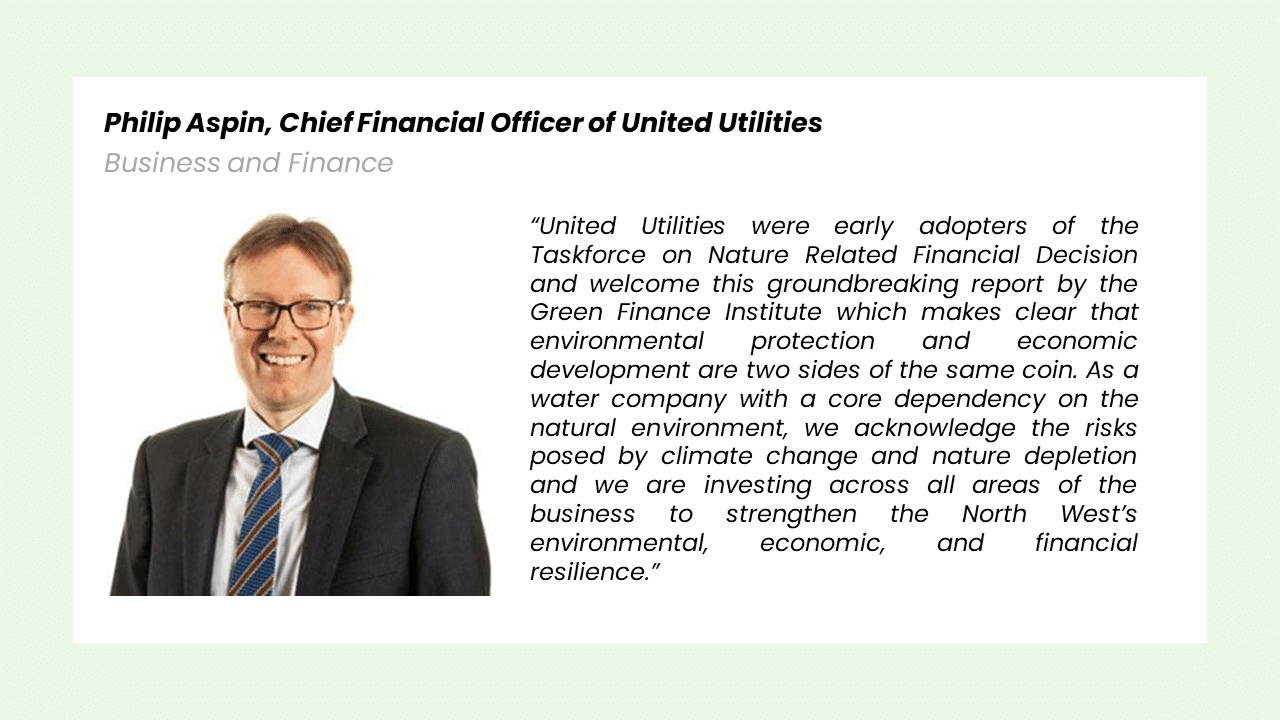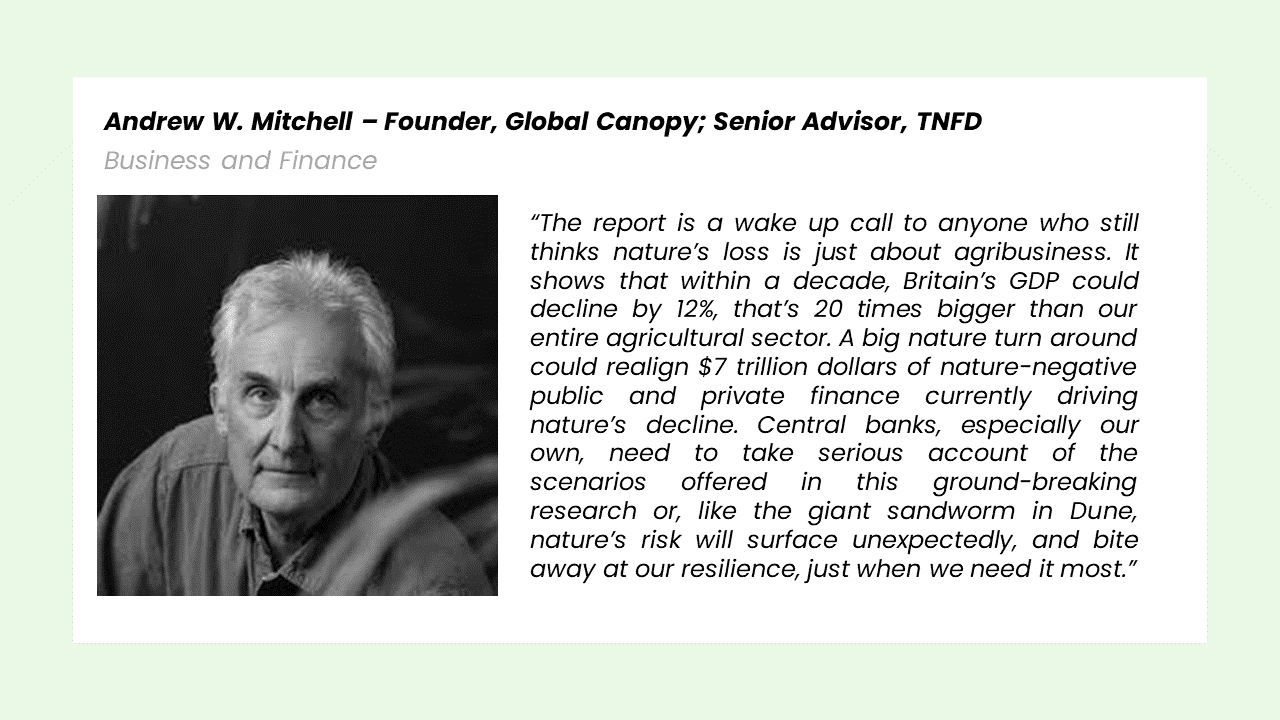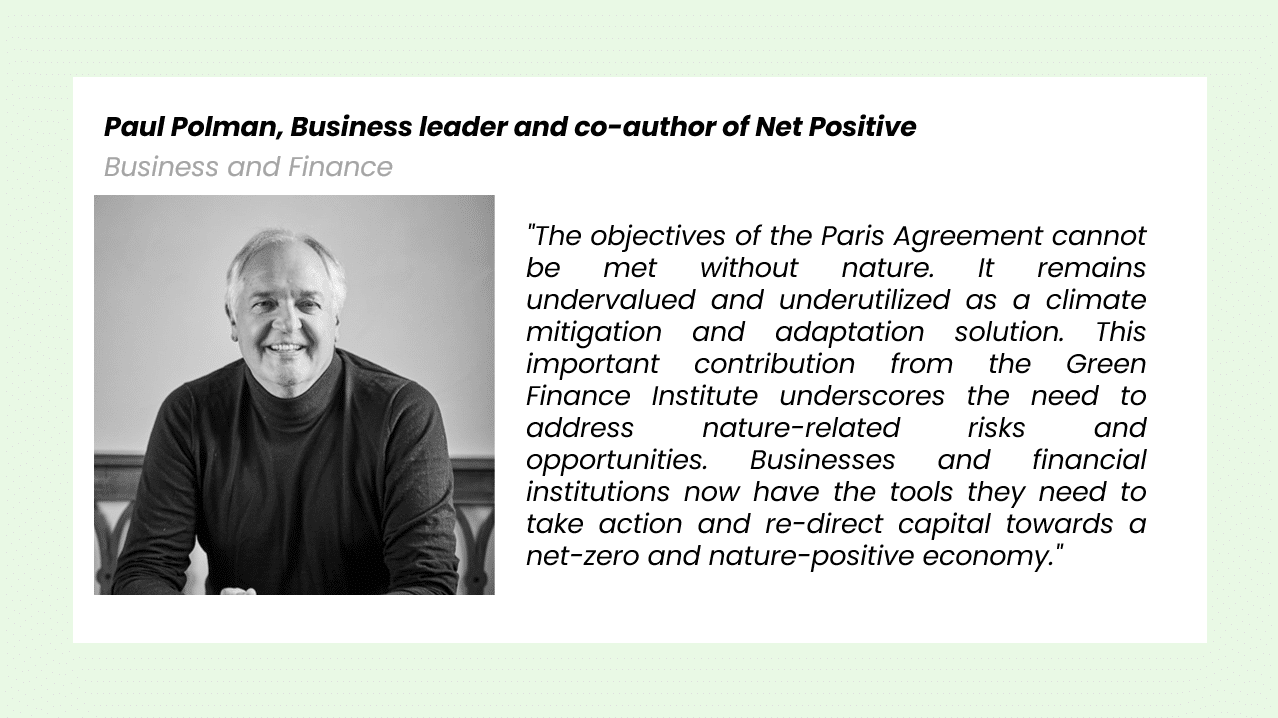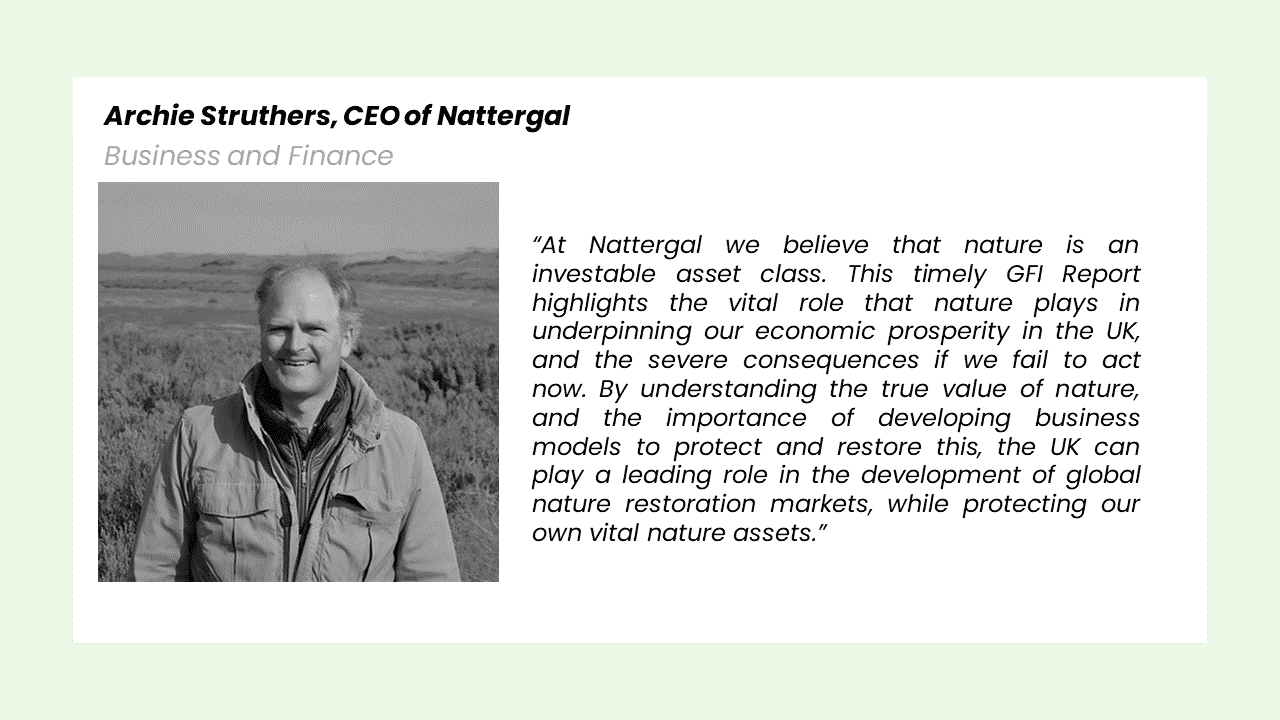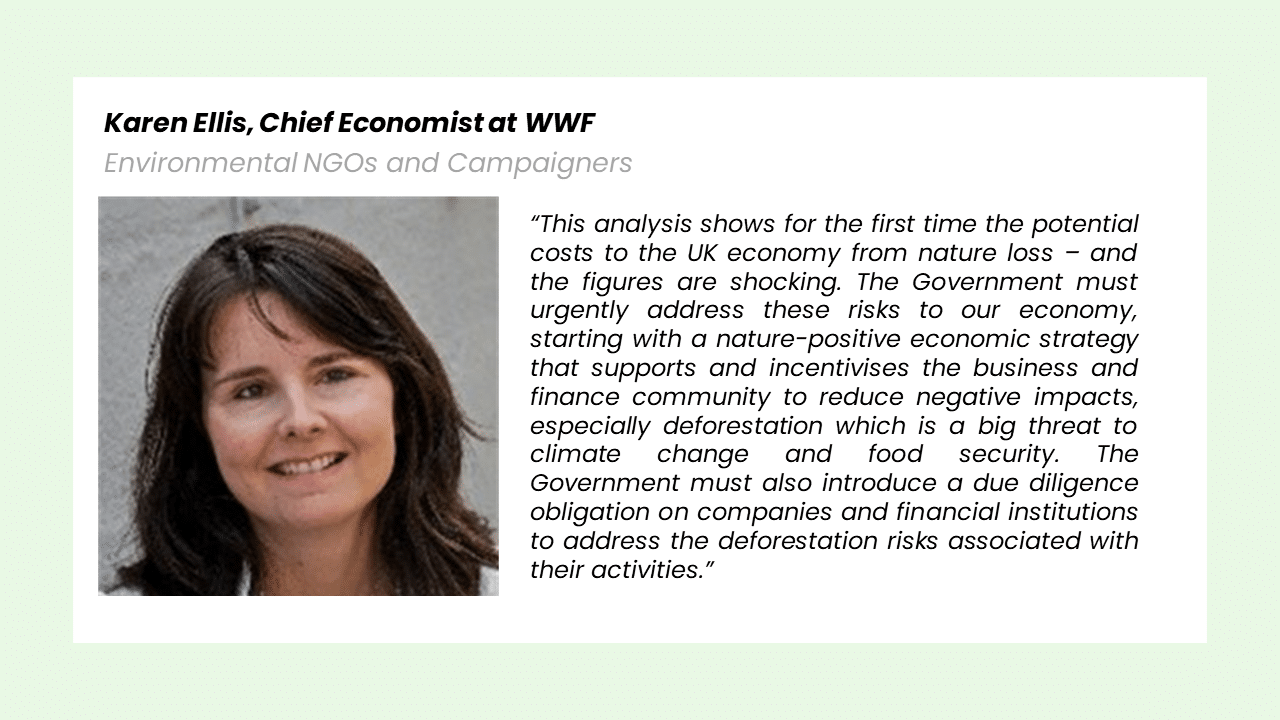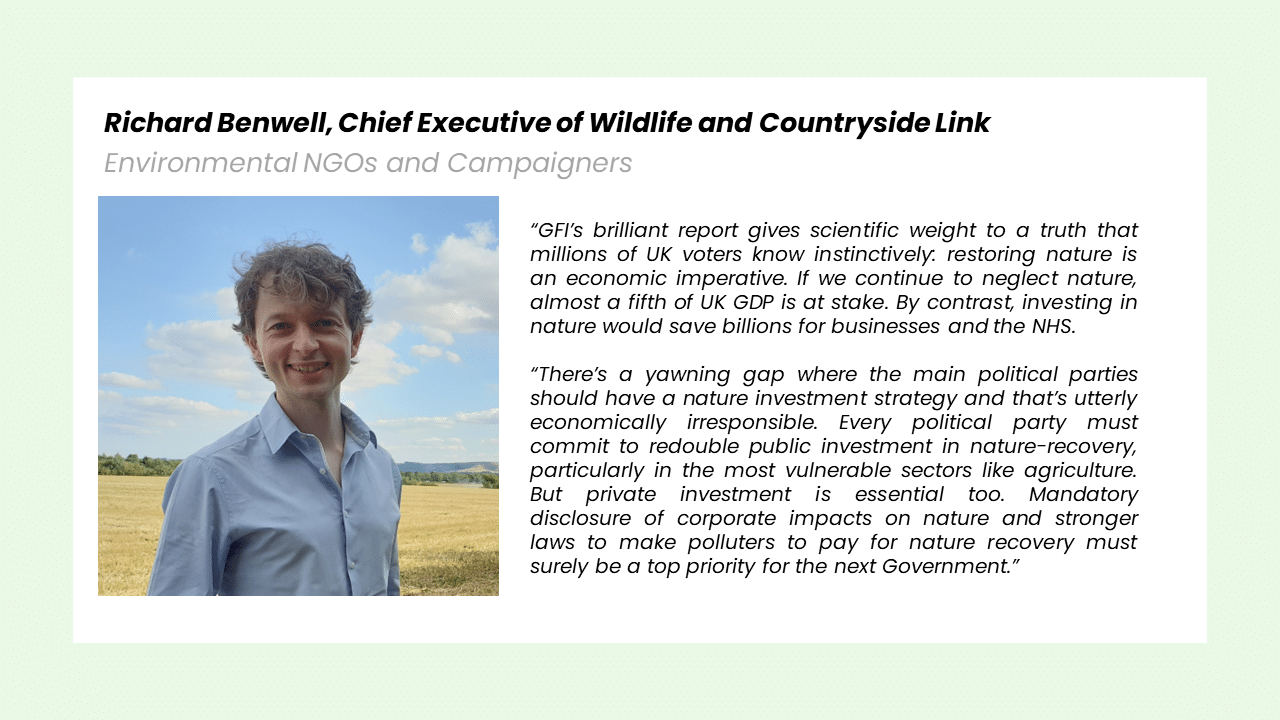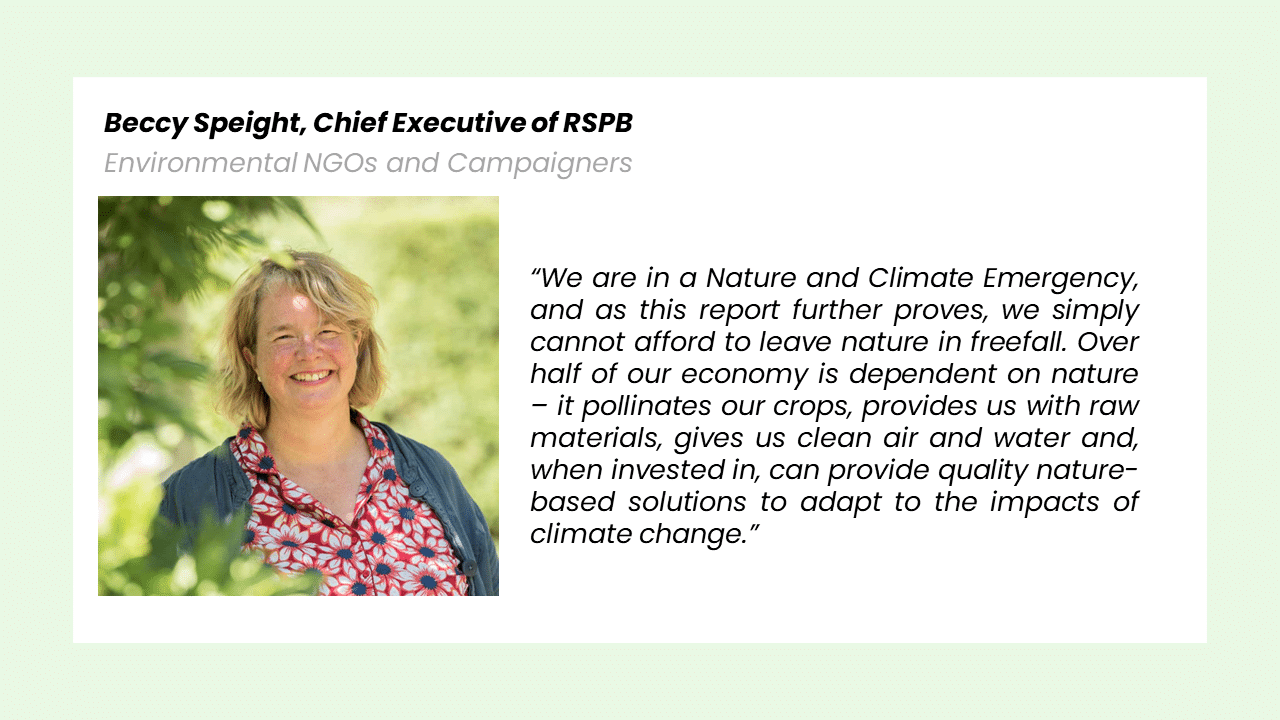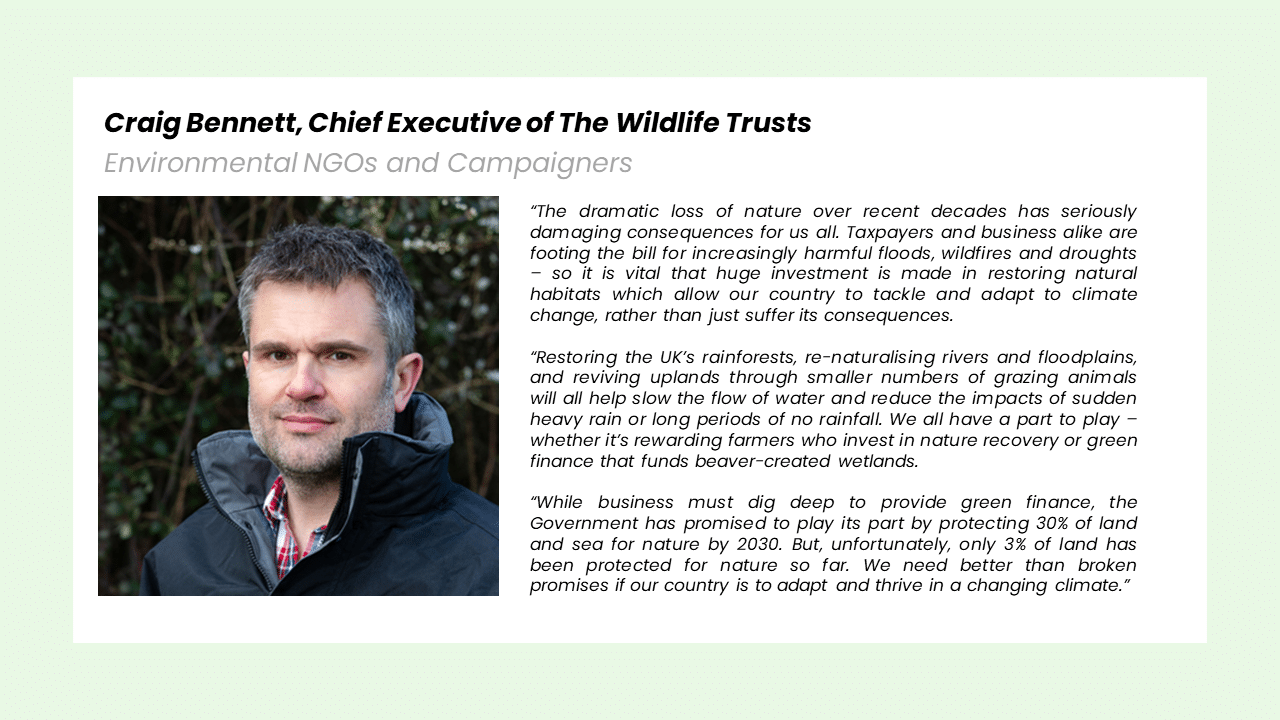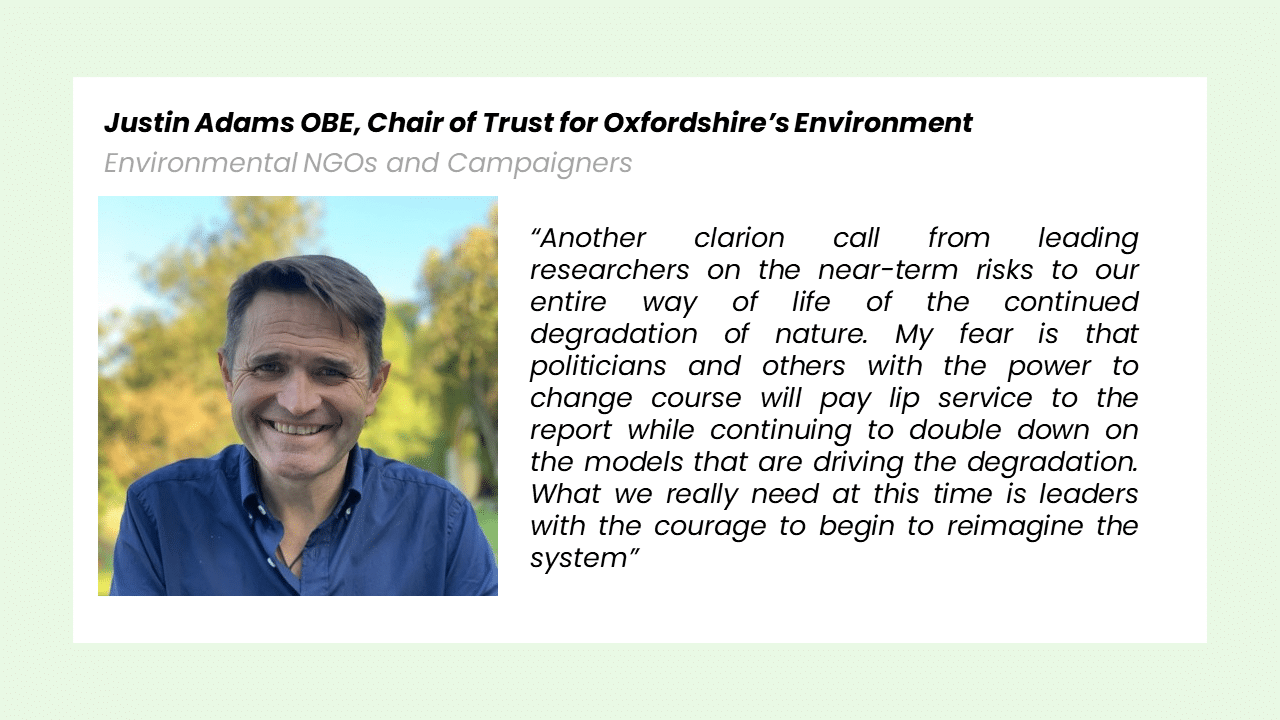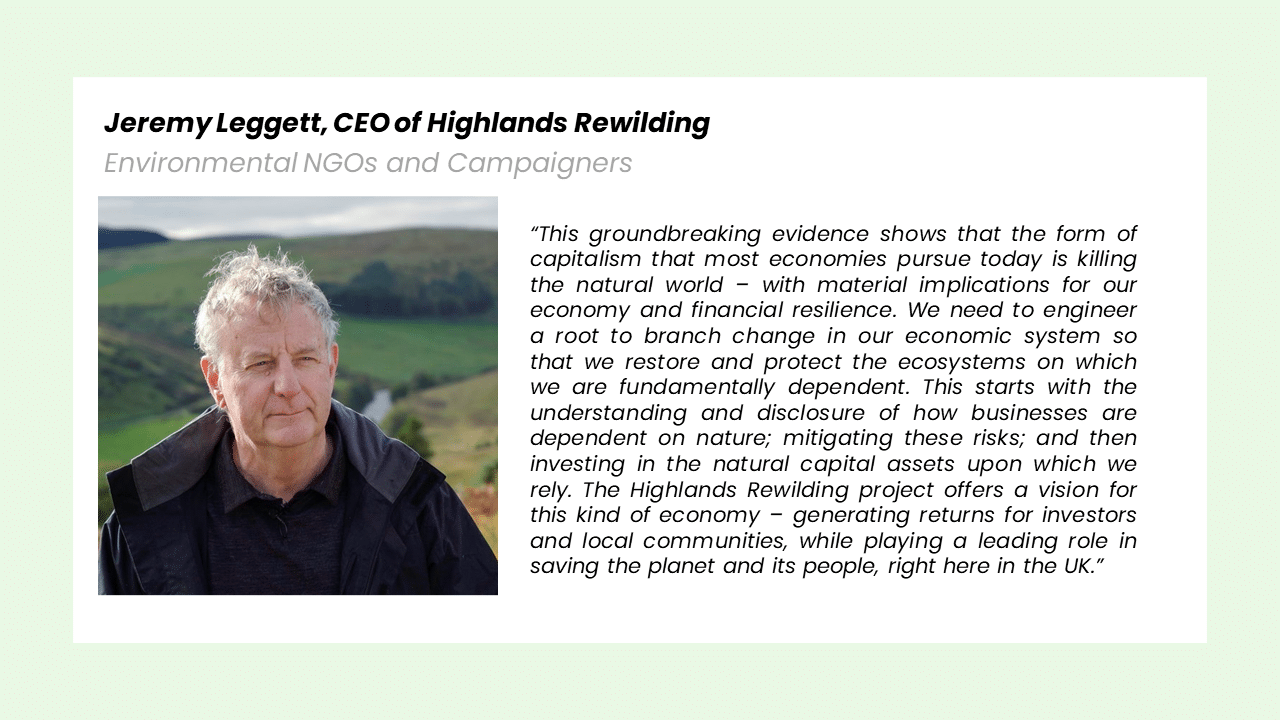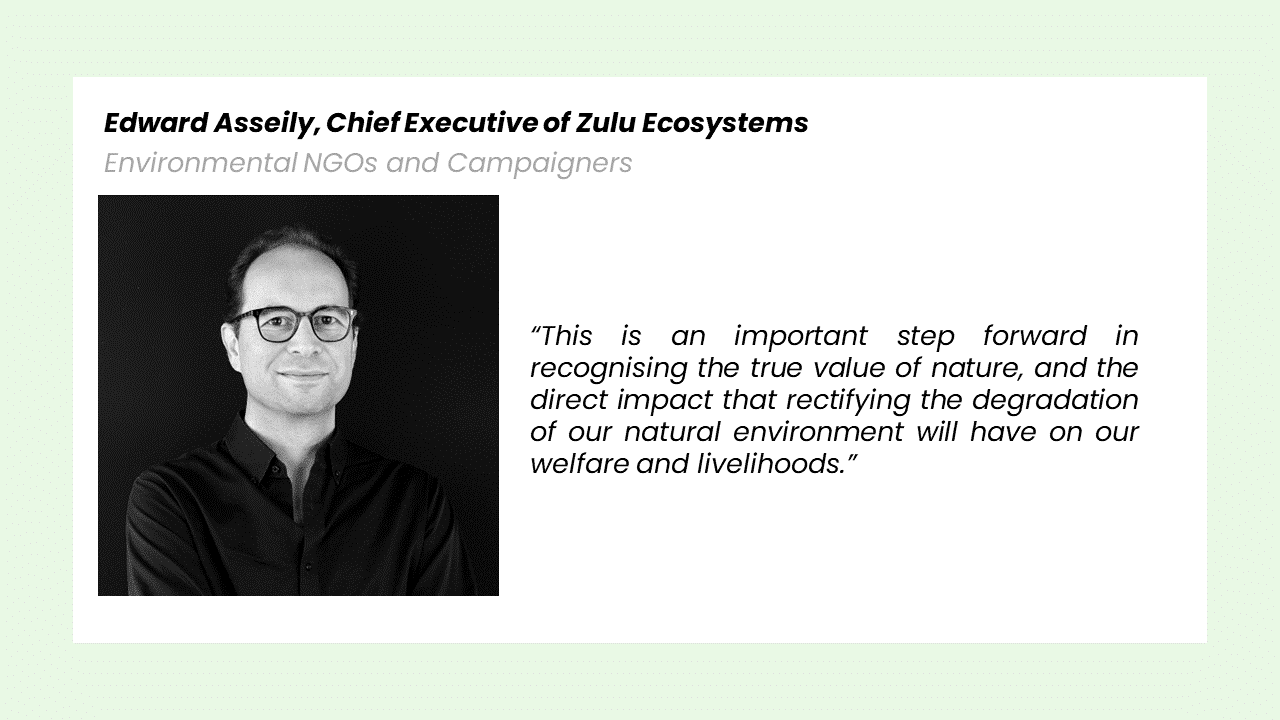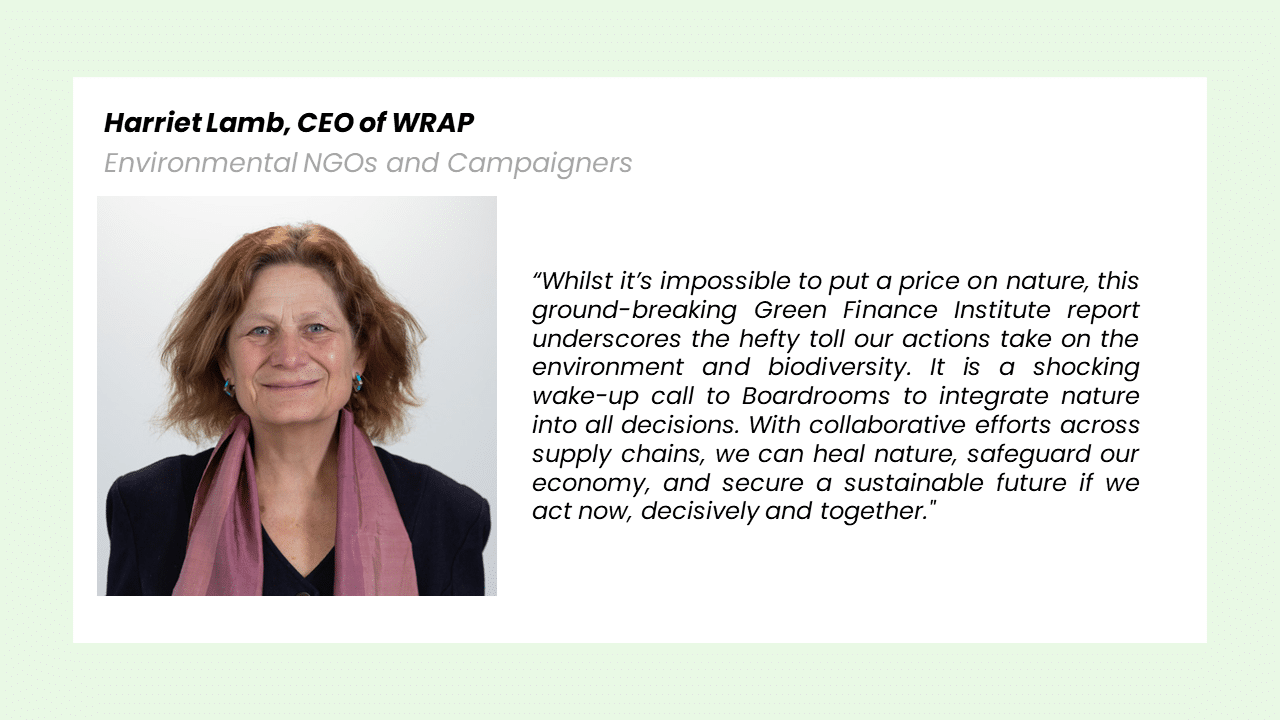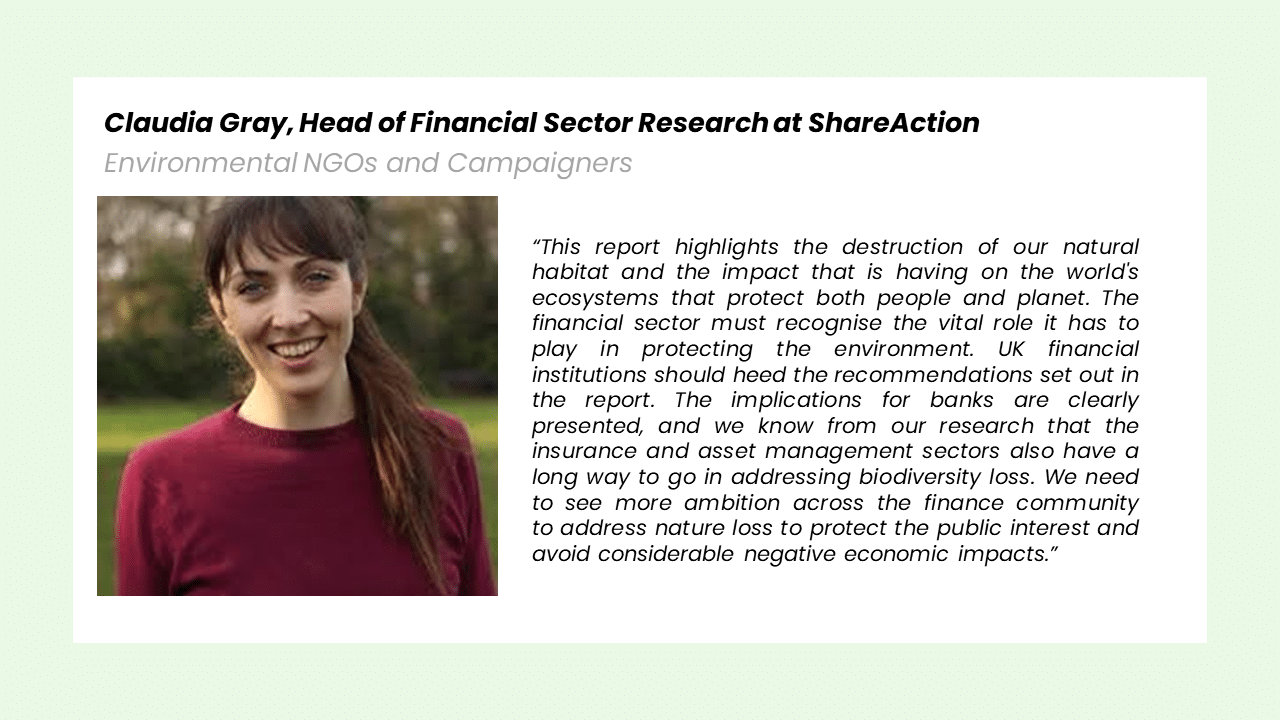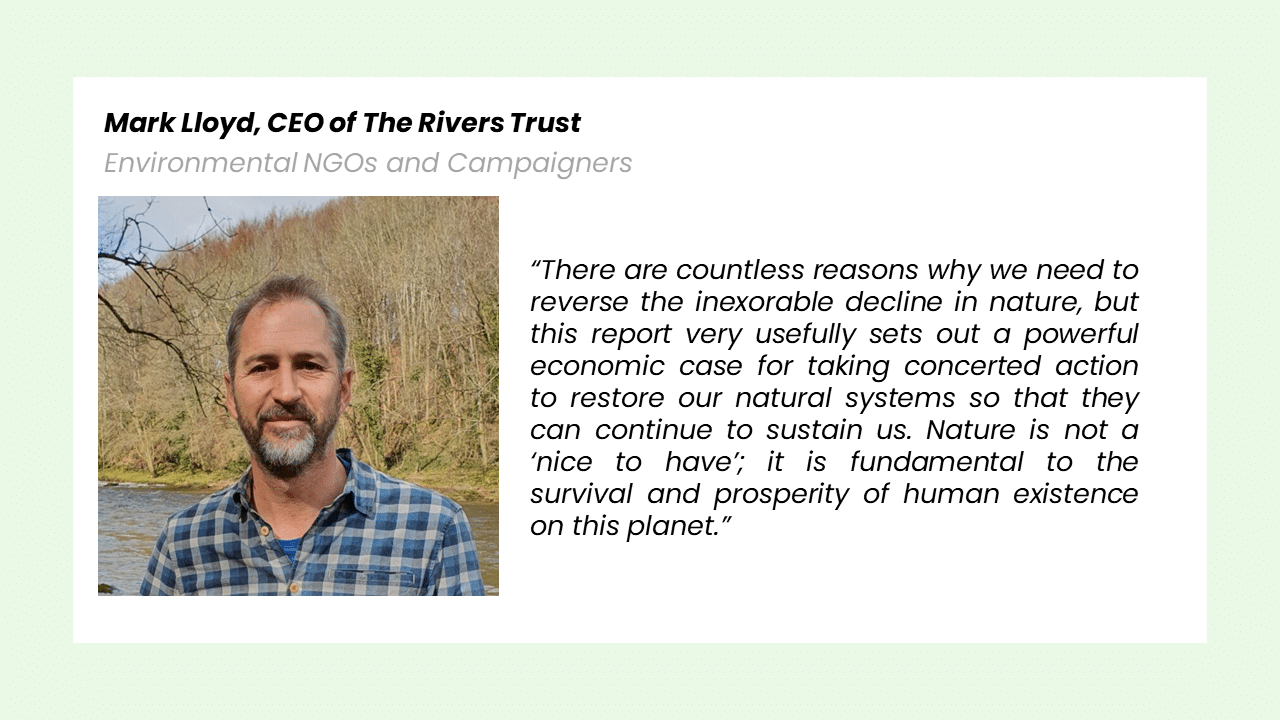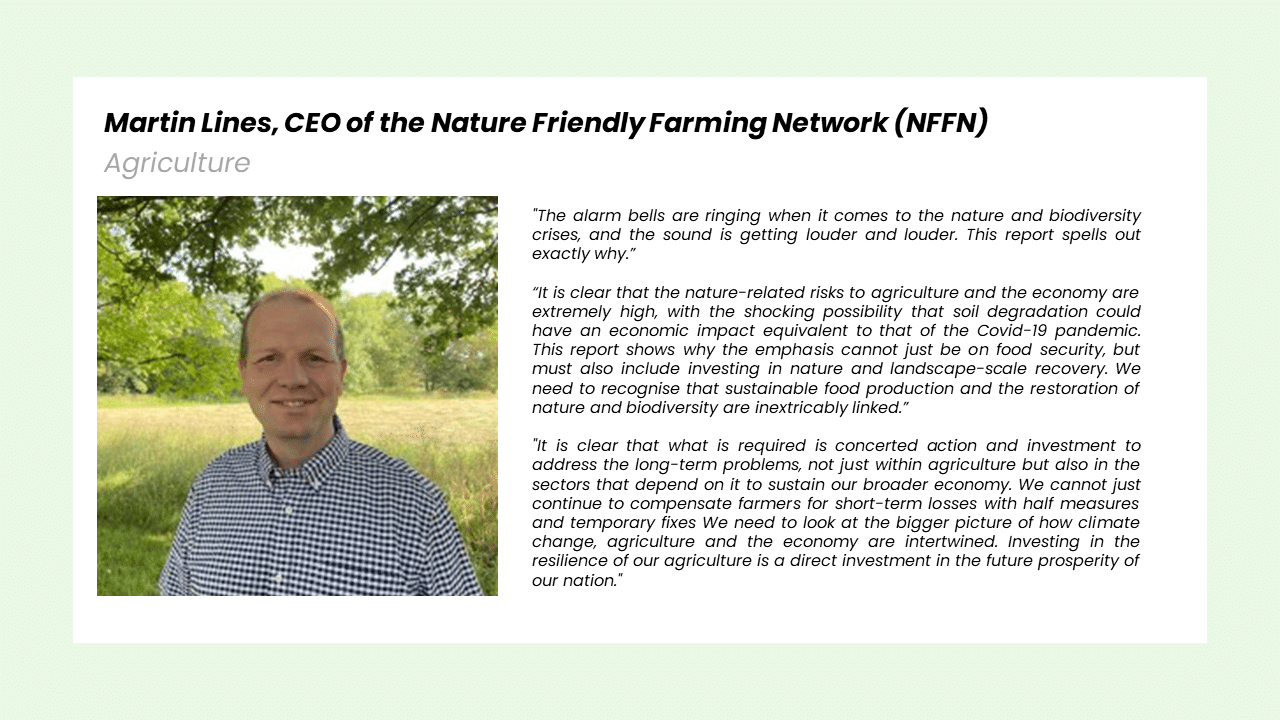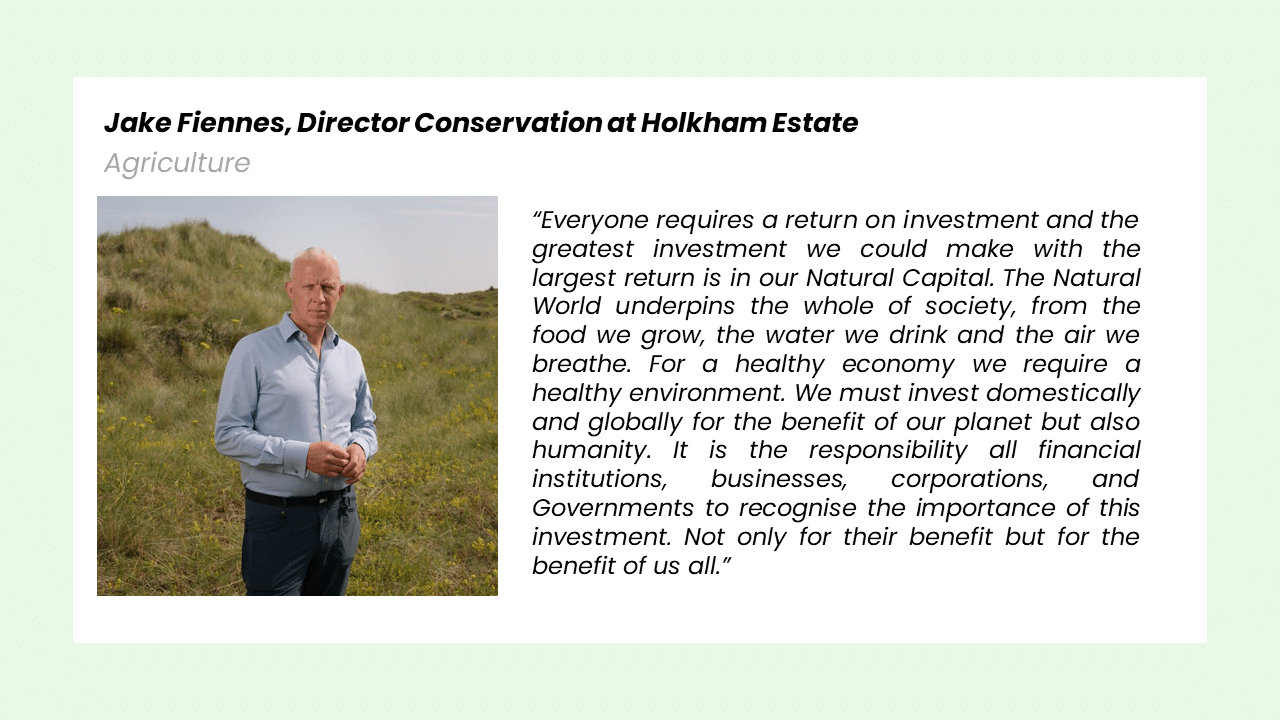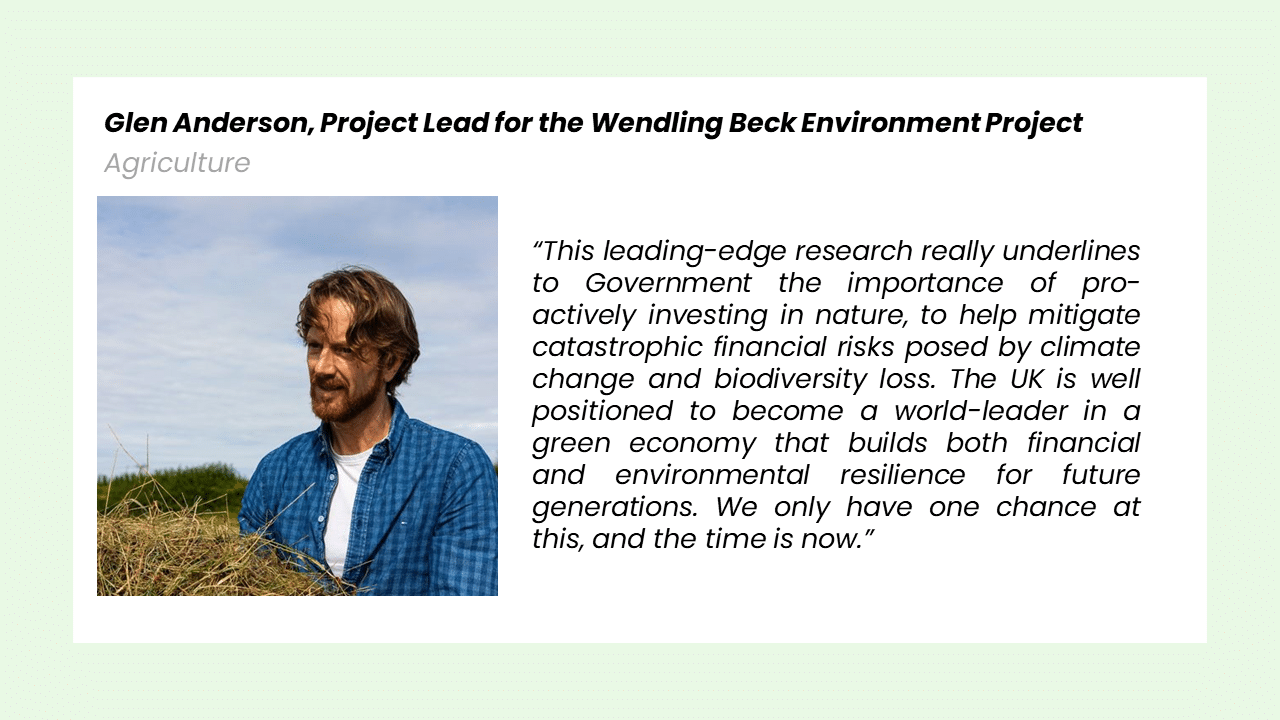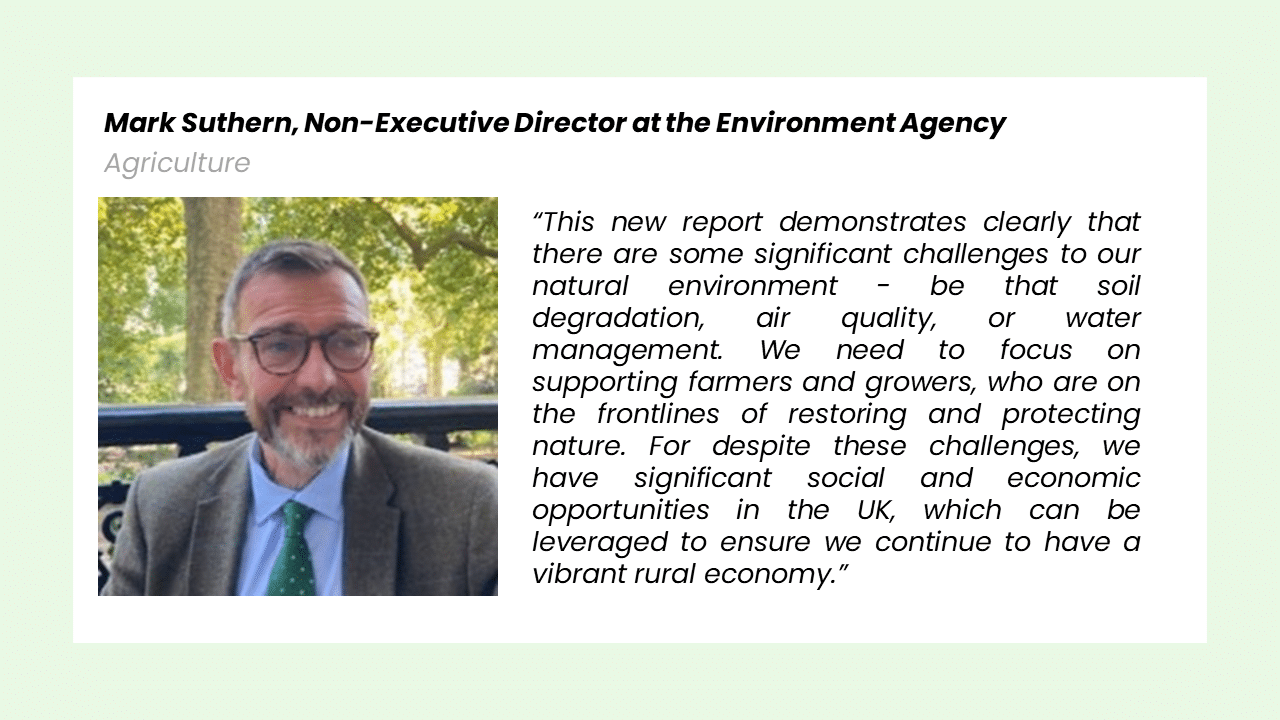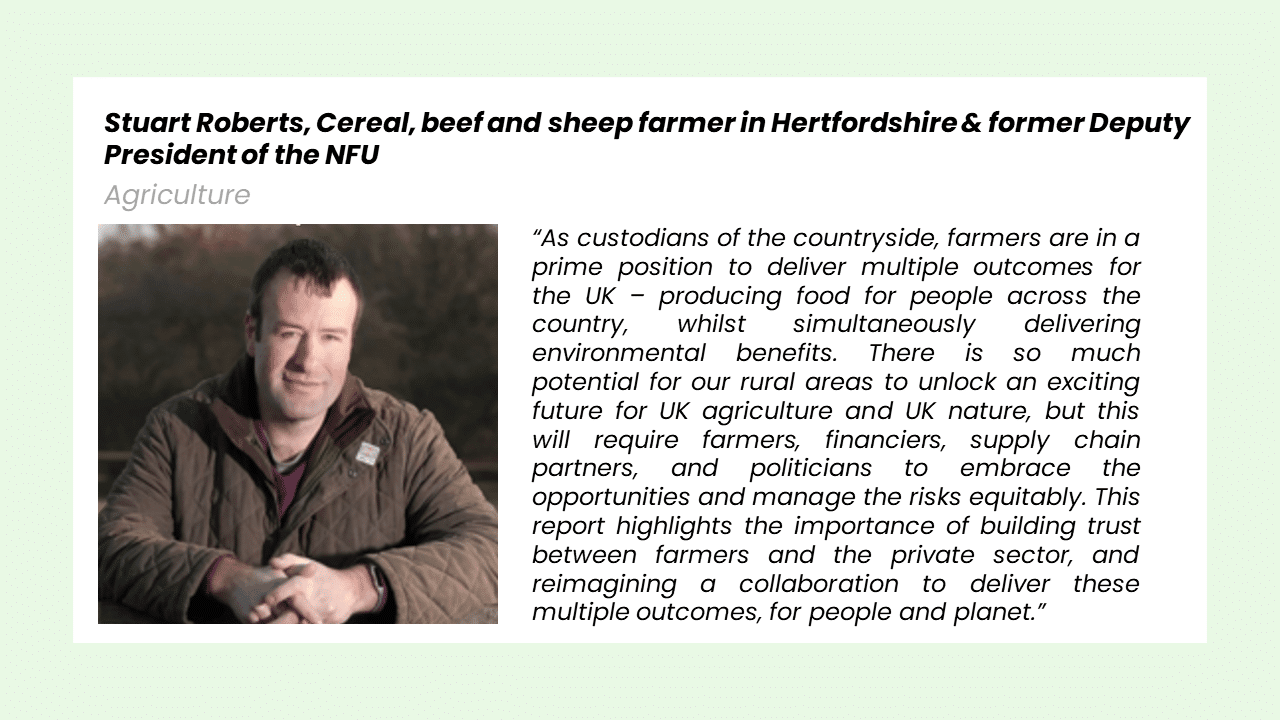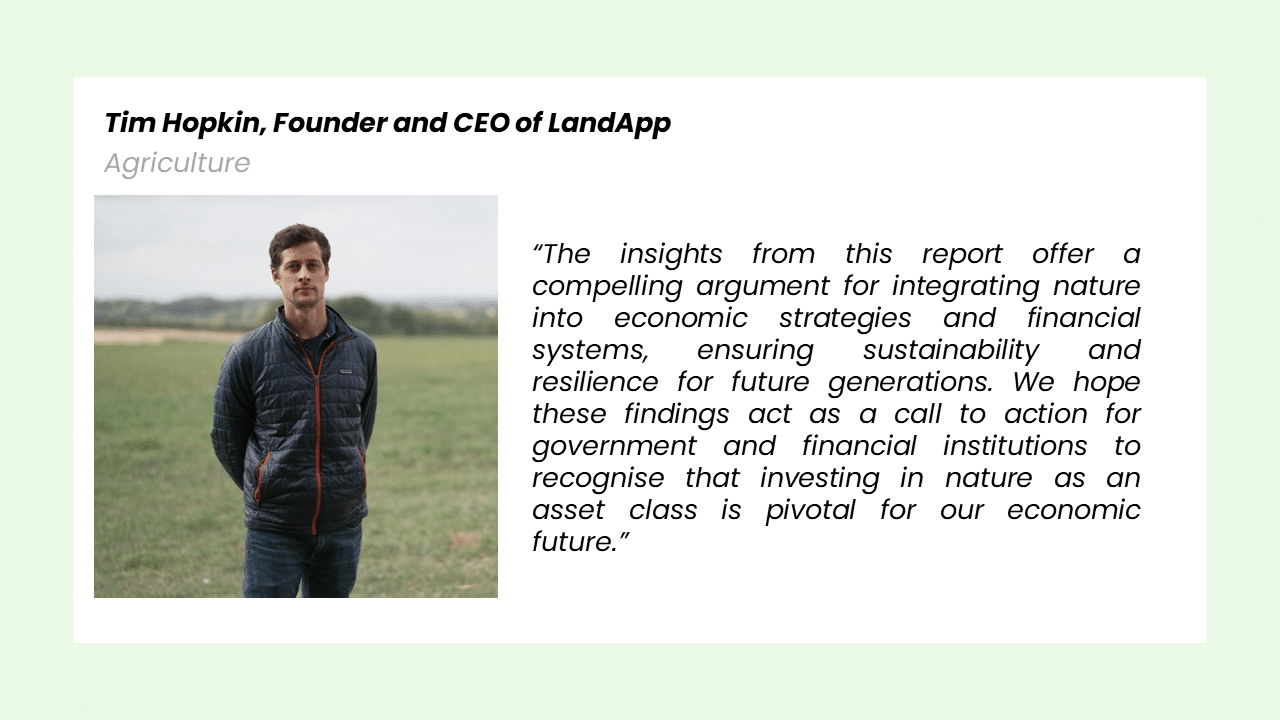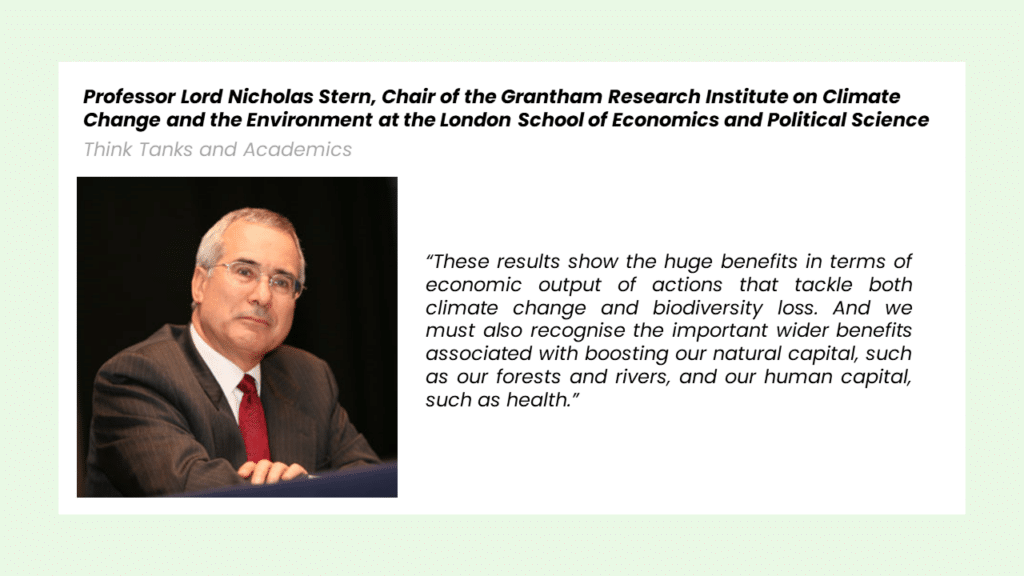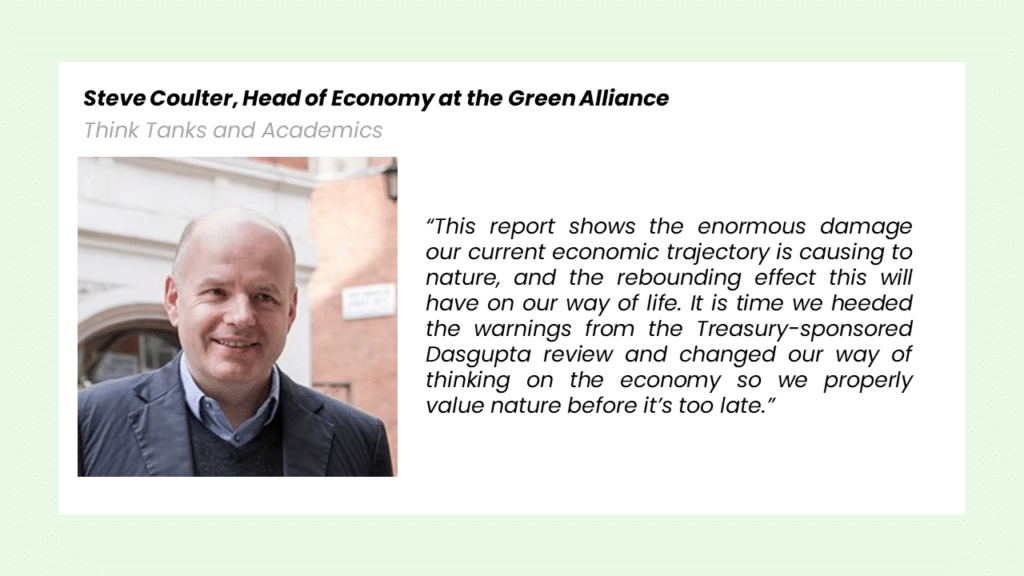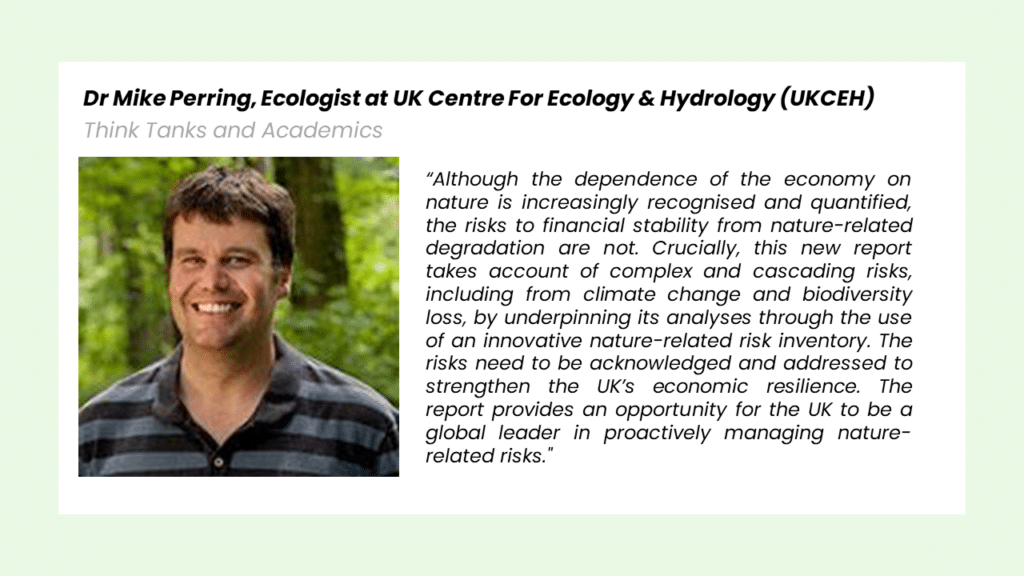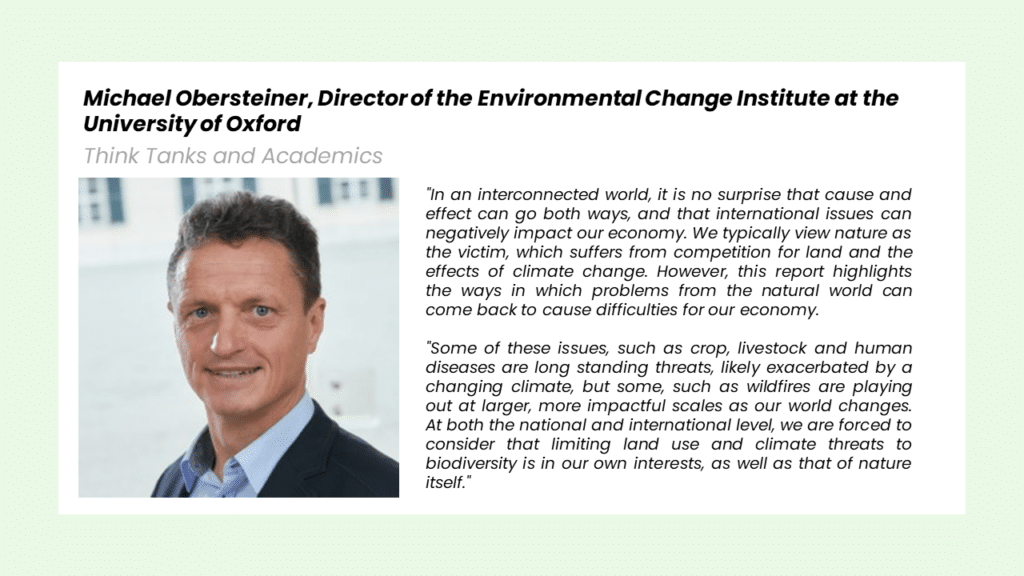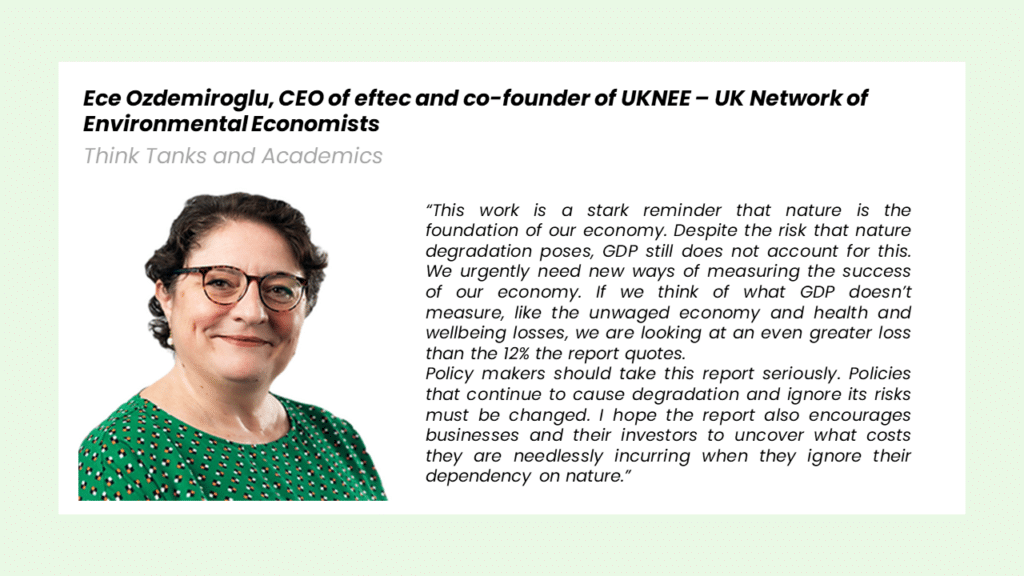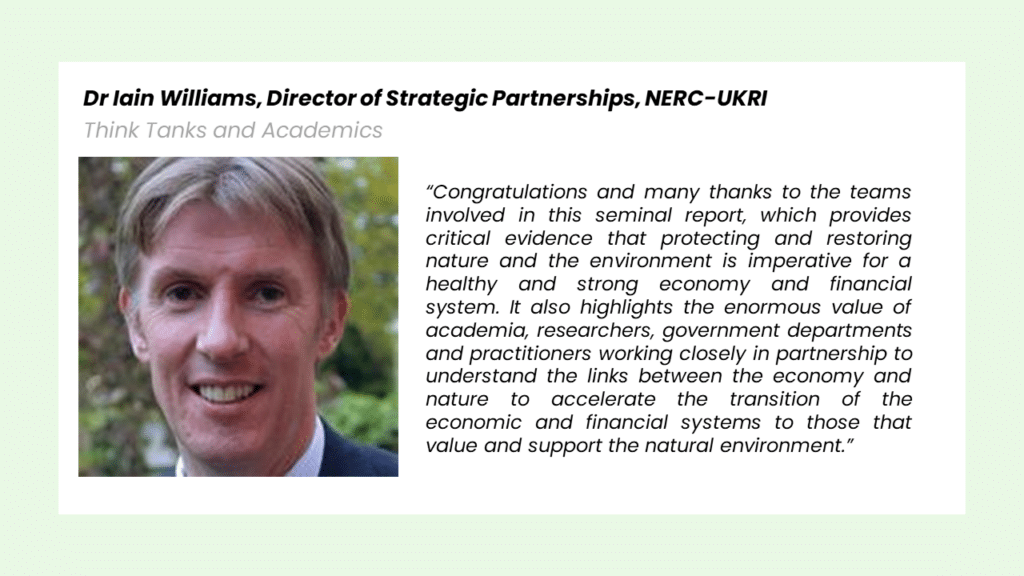Nature degradation could cause a 12% loss to UK GDP
- Damage to the natural environment is slowing the UK economy, and could lead to an estimated 12% reduction to GDP in the years ahead – larger than the hit to GDP from the global financial crisis or Covid-19.
- First-of-its-kind analysis, published on 25 April, quantifies the impact that nature degradation, both domestically and internationally, could have on the UK’s economy and financial sector.
- These risks need to be acknowledged and addressed to strengthen the UK’s economic and financial resiliency.
- The work was led by the Green Finance Institute (GFI), with a technical team involving the UK’s top researchers: the Environmental Change Institute at the University of Oxford, the University of Reading, the UN Environment Programme World Conservation Monitoring Centre (UNEP-WCMC), and the National Institute of Economic and Social Research (NIESR).
- On 3 June, the GFI followed up with a public webinar: ‘Nature-related Risk Quantification | What’s next?’, which discussed the results of the analysis, and what it means for business, finance, NGOs and government. You can watch the recording of this webinar here.

The deterioration of the UK’s natural environment could lead to an estimated 12% loss to GDP, according to new analysis. In comparison, the financial crisis of 2008 took around 5% off the value of the UK GDP, while the Covid-19 pandemic cost the UK up to 11% of its GDP in 2020.
This is according to a first-of-its-kind analysis, led by the GFI, with input from the scientific and financial community, as well as direction from the Department for Environment, Food and Rural Affairs (Defra), HM Treasury (HMT) and the Taskforce on Nature-related Financial Disclosures (TNFD), and input from the Financial Conduct Authority (FCA). The report – Assessing the Materiality of Nature-Related Financial Risks for the UK – analyses the impact of the degradation of natural ecosystems, both domestically and internationally, to the economy and financial sector in the UK.
Nature-related risks are as detrimental to the economy as those from climate risks, the analysis shows. Yet, while the economic costs of climate change are becoming increasingly accepted, the risks posed by nature degradation amount to a material cost that has not been sufficiently factored into financial and business decision-making. This is leaving the economy and financial sector exposed, while these risks continue to rise unchecked. The UK is one of the most nature-depleted countries in the world – three quarters of the UK has a high level of ecosystem degradation, with risks to financial services and the wider economy as a result. The analysis shows however, that half of the UK’s nature-related financial risks originate overseas.
Within the analysis, a new inventory charts these domestic and international nature-related risks to the economy, many of which are not currently captured in national risk assessments. The inventory captures financial risks arising from the deterioration of nature and biodiversity, including: soil health decline; water shortages; global food security repercussions; zoonotic diseases that pass from animals to humans, like bird flu, swine flu, and Covid-19; and antimicrobial resistance, where bacteria and viruses no longer respond to medicines; as well as transition and litigation risks.
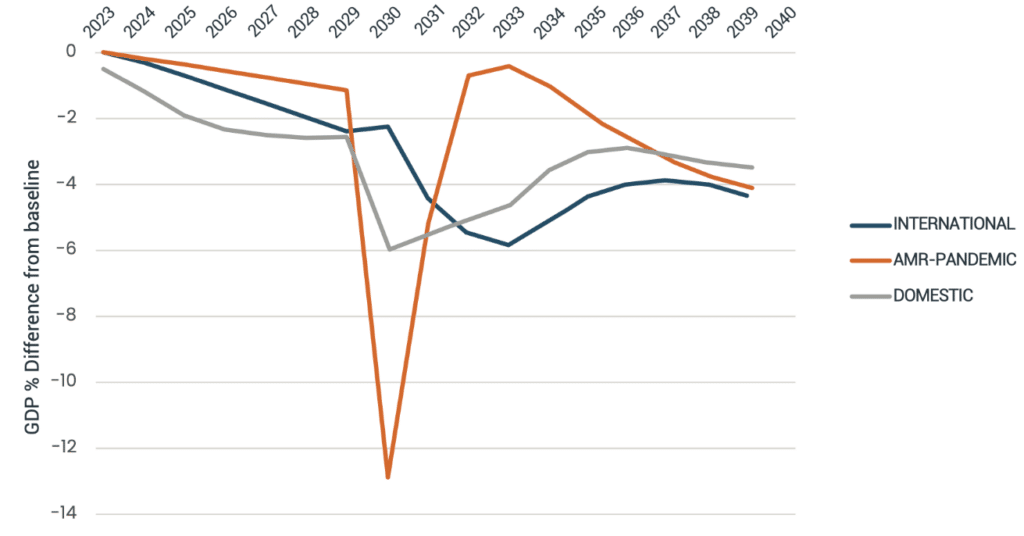
These impacts on the real economy will also have a material financial impact on banks and other financial institutions. The analysis estimates that some banks could see reductions in the value of their domestic portfolios of up to around 4 – 5% in some cases. Noting that these estimates are likely to be conservative, this indicates that nature-related risk will not just impact the economy, but potentially financial resilience.
Demonstrating the significance of the risks, these findings present an opportunity for swift action from governments, central banks, regulators and the financial sector to proactively manage nature-related risks and to position the UK as a global leader in addressing them. For businesses there are early-mover advantages for those that act to improve and support resiliency, particularly within their supply chains.
The GFI and technical team make several recommendations for the public and private sectors. These include disclosures of nature-related risks and taking urgent action to meet the targets included within the Global Biodiversity Framework (GBF).
If you would like to discuss the report’s findings, please contact [email protected]
Key Documents
Supplementary Materials
Supportive Quotes
Lead and Supporting Organisations
Business and Finance
Environmental NGOs and Campaigners
Agriculture
Think Tanks and Academics
Webinar: Nature-related Risk Quantification | What’s next?
Following the publication of this analysis on the 28th of April, this webinar was hosted by GFI Hive to discuss the results, and what it means for business, finance, NGOs and government. Contributors commented on the landmark findings and discuss what we need to see from business, finance, and the third sector to mitigate these risks and reap the benefits of the opportunities in doing so.
